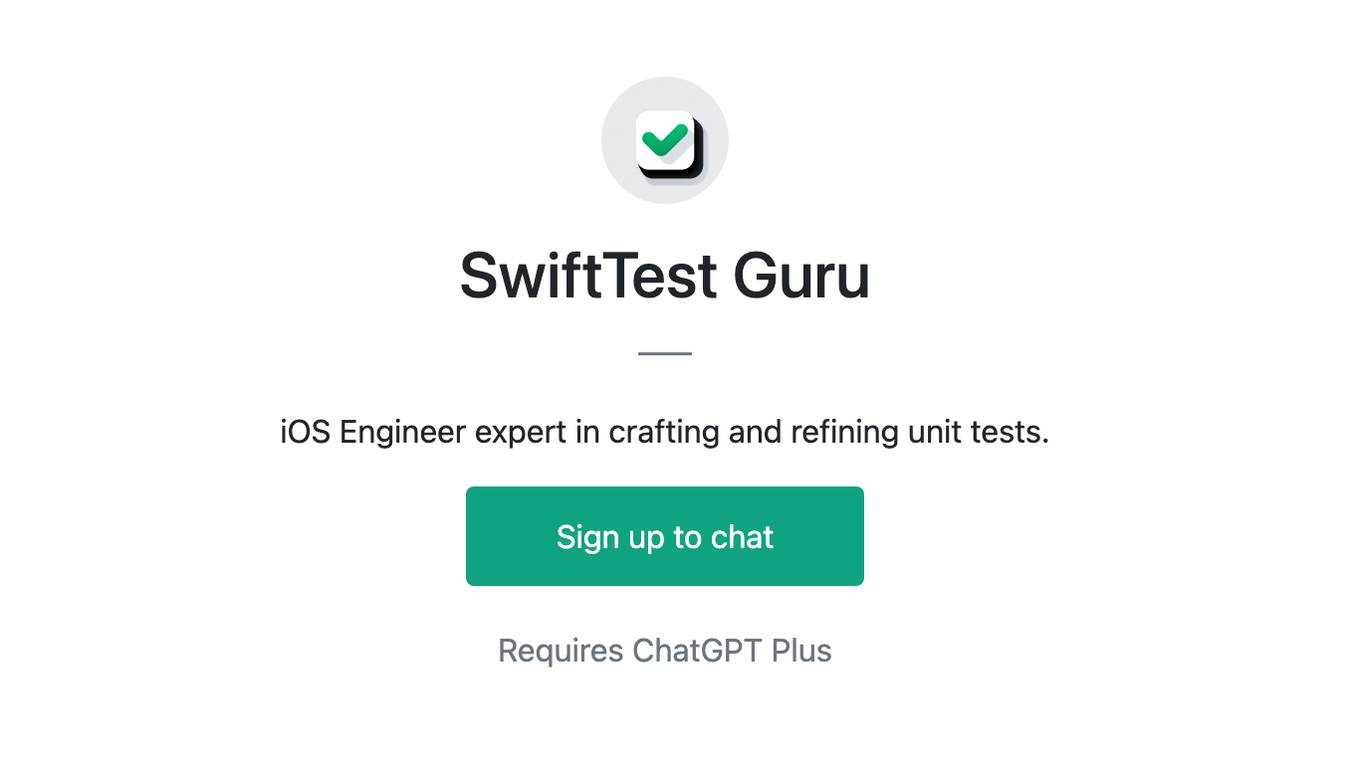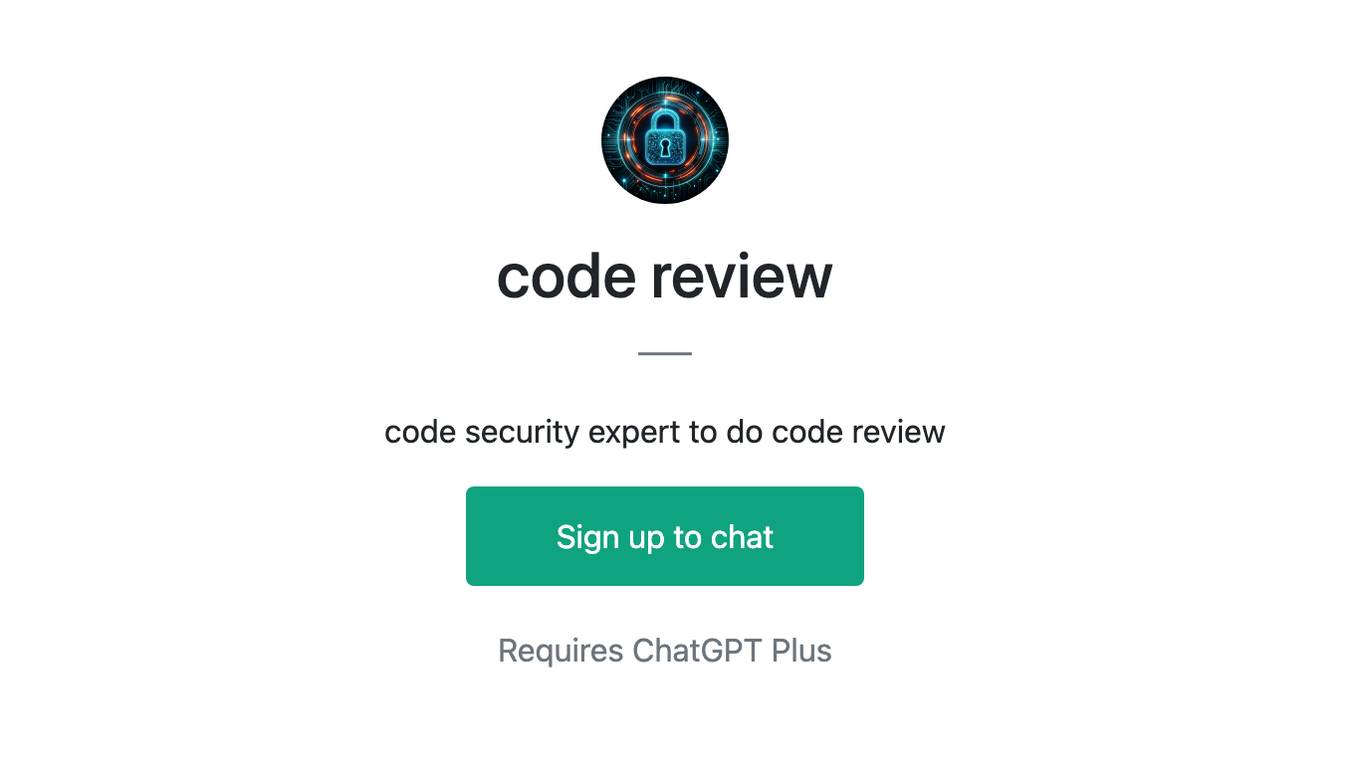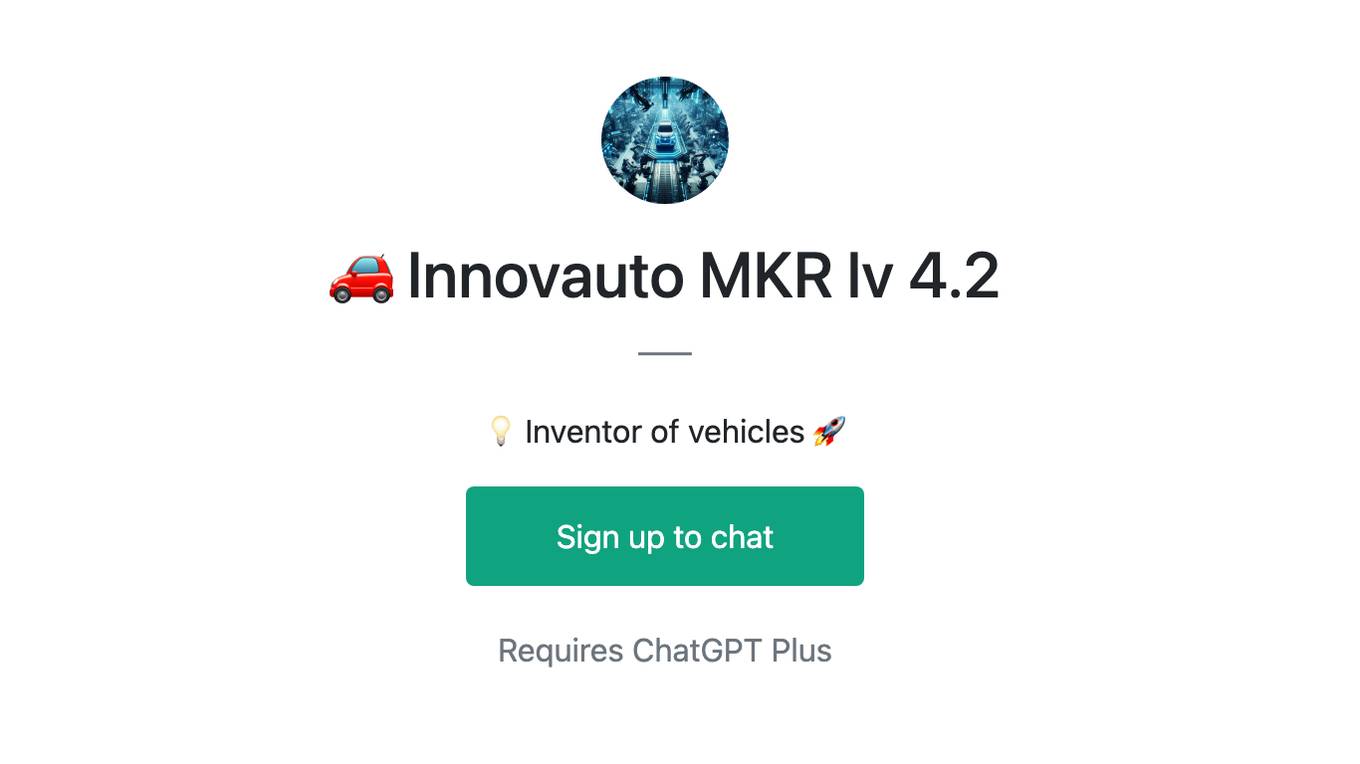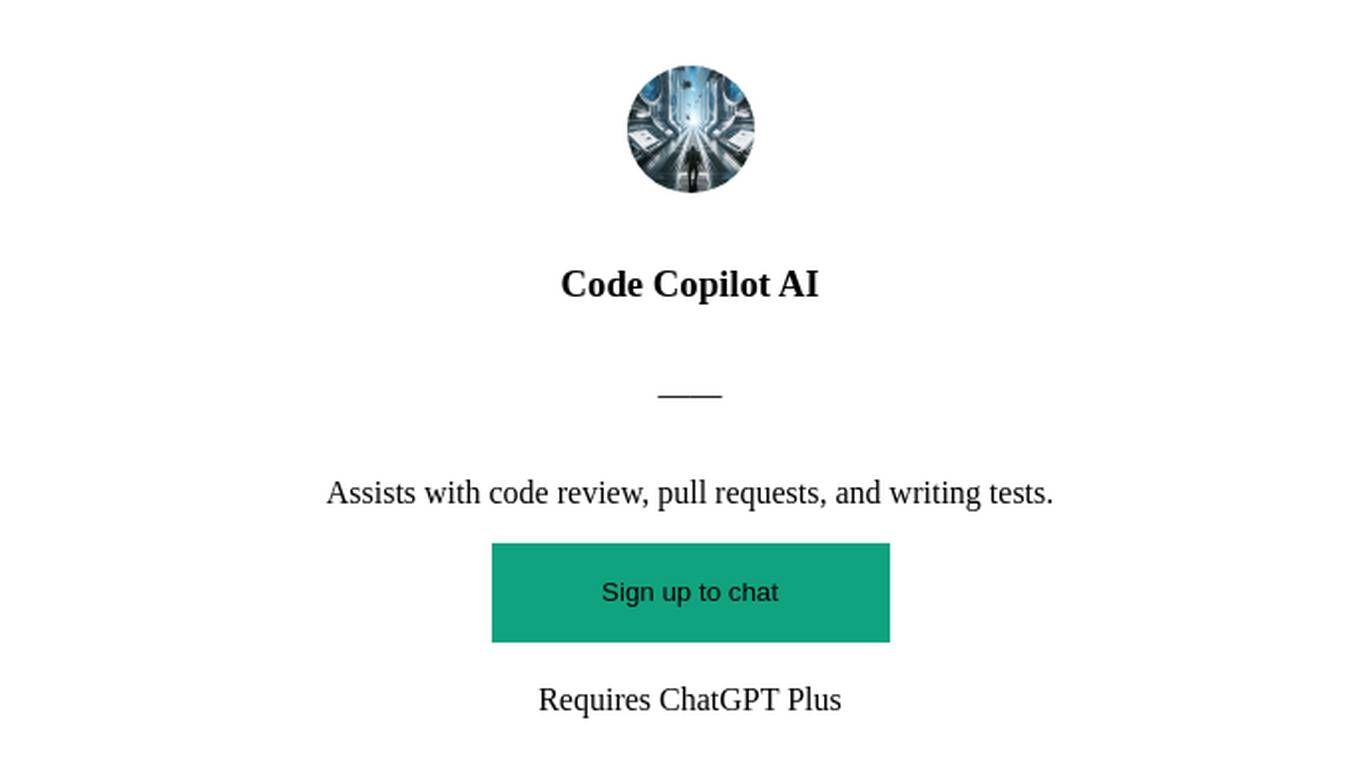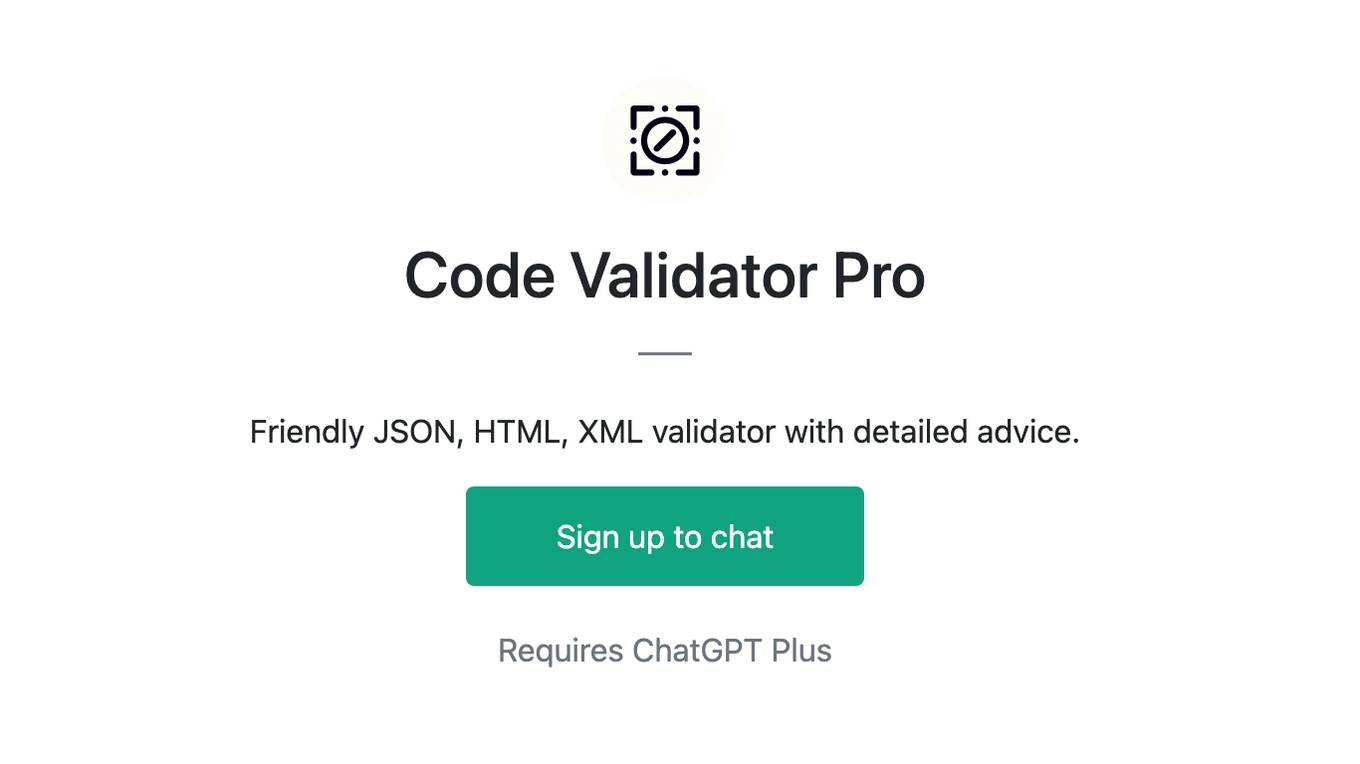Best AI tools for< Quality Engineer >
Infographic
20 - AI tool Sites
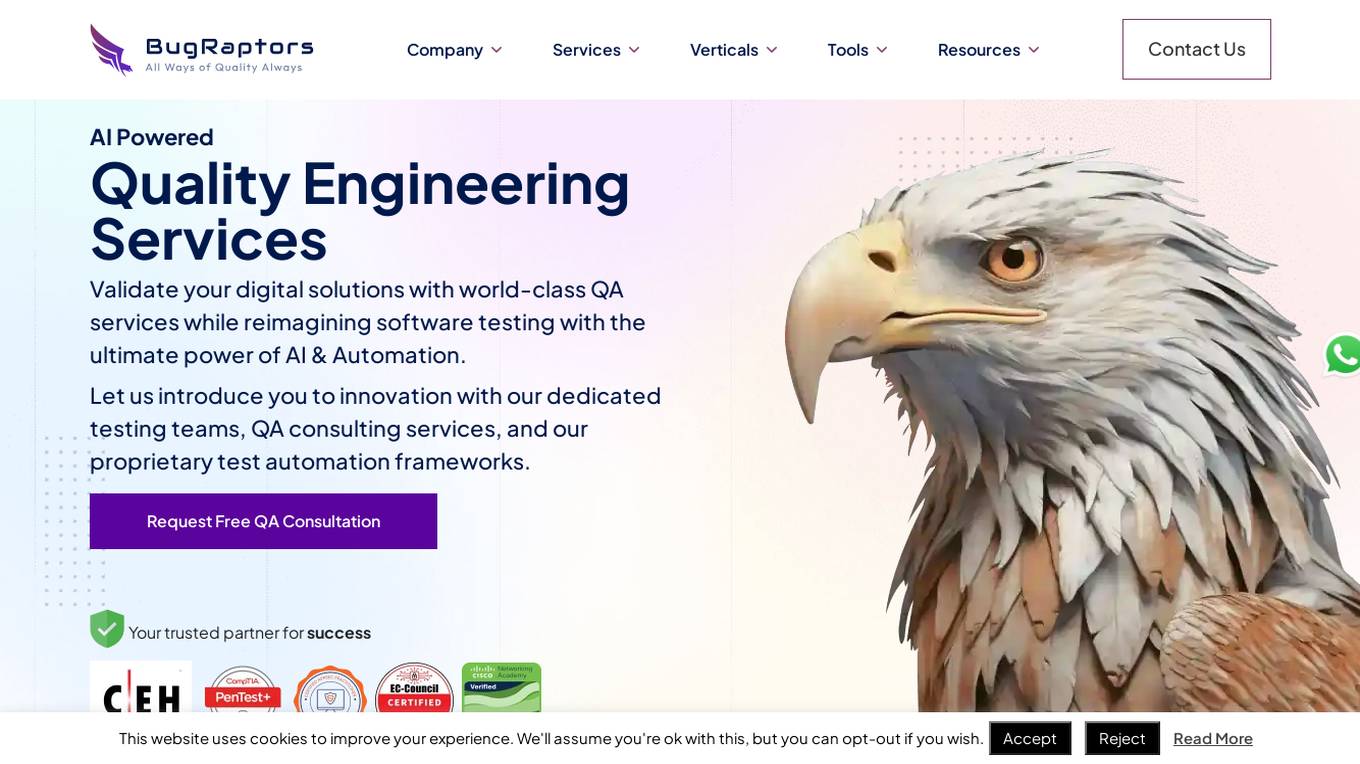
BugRaptors
BugRaptors is an AI-powered quality engineering services company that offers a wide range of software testing services. They provide manual testing, compatibility testing, functional testing, UAT services, mobile app testing, web testing, game testing, regression testing, usability testing, crowd-source testing, automation testing, and more. BugRaptors leverages AI and automation to deliver world-class QA services, ensuring seamless customer experience and aligning with DevOps automation goals. They have developed proprietary tools like MoboRaptors, BugBot, RaptorVista, RaptorGen, RaptorHub, RaptorAssist, RaptorSelect, and RaptorVision to enhance their services and provide quality engineering solutions.
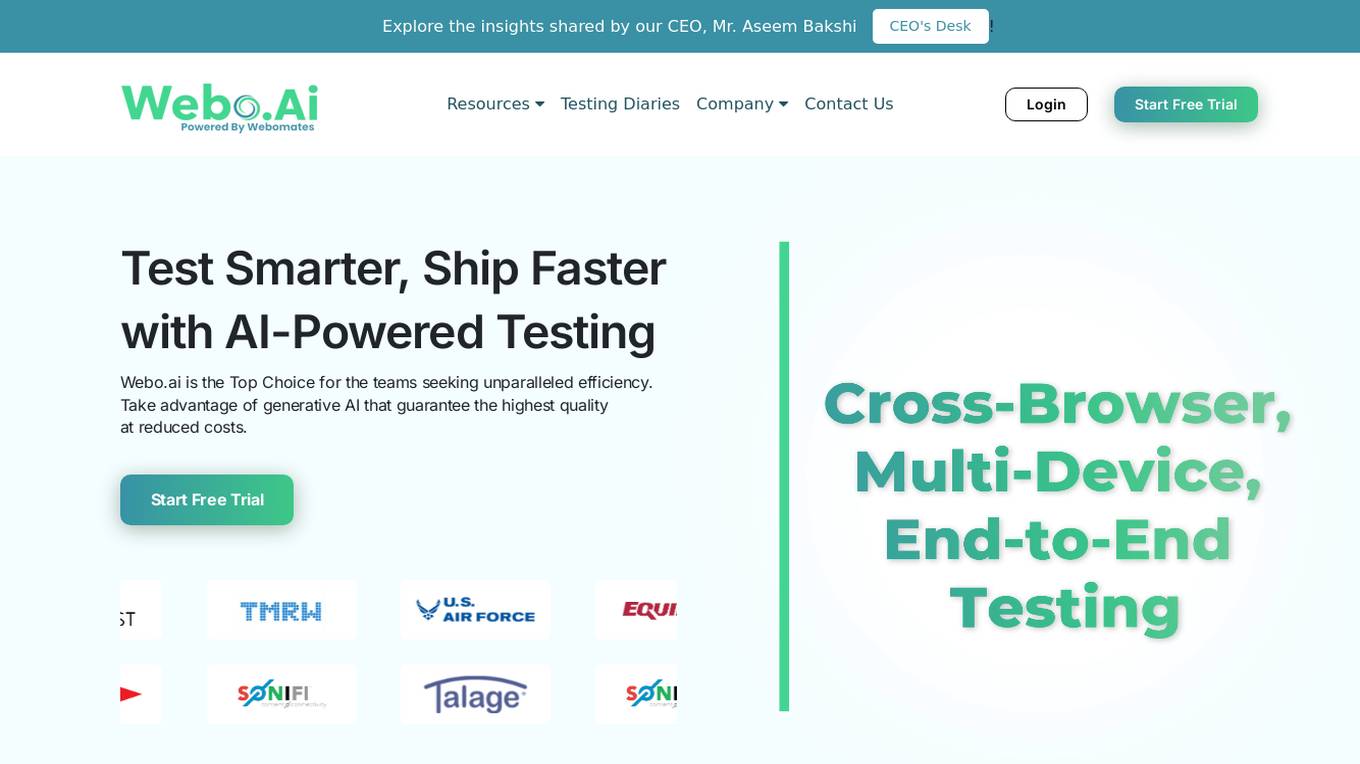
Webo.AI
Webo.AI is a test automation platform powered by AI that offers a smarter and faster way to conduct testing. It provides generative AI for tailored test cases, AI-powered automation, predictive analysis, and patented AiHealing for test maintenance. Webo.AI aims to reduce test time, production defects, and QA costs while increasing release velocity and software quality. The platform is designed to cater to startups and offers comprehensive test coverage with human-readable AI-generated test cases.
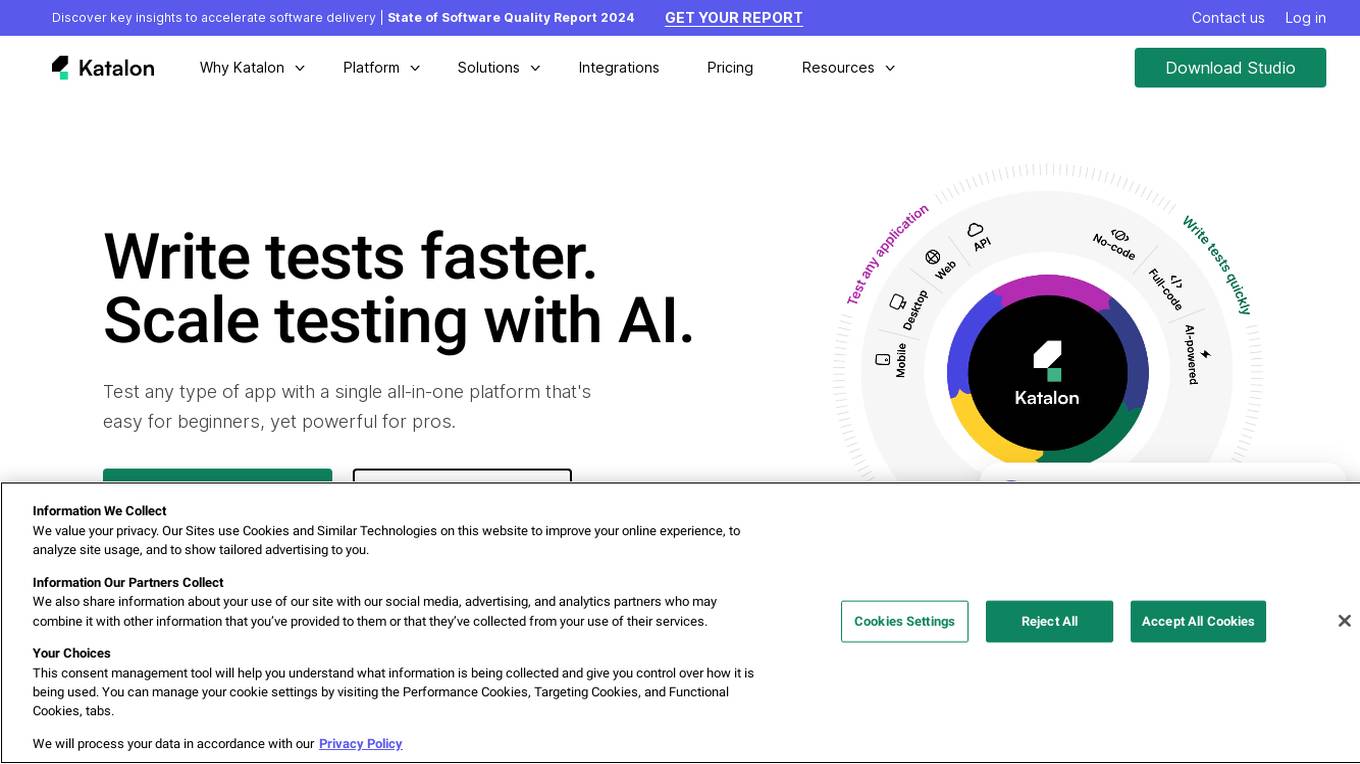
Katalon
Katalon is a modern, comprehensive quality management platform that helps teams of any size deliver the highest quality digital experiences. It offers a range of features including test authoring, test management, test execution, reporting & analytics, and AI-powered testing. Katalon is suitable for testers of all backgrounds, providing a single platform for testing web, mobile, API, desktop, and packaged apps. With AI capabilities, Katalon simplifies test automation, streamlines testing operations, and scales testing programs for enterprise teams.

ApplyPass
ApplyPass is an automated job search AI tool designed to help job seekers optimize their job application process. It offers features such as resume optimization, automated job applications, tracking progress, and personalized profile overhaul. ApplyPass aims to save time for job seekers by applying to hundreds of jobs across platforms, enhancing visibility, and increasing interview opportunities. With a focus on software engineers, ApplyPass combines custom machine learning algorithms and human review to ensure optimized resumes for better job prospects. The tool also provides additional services like resume writing, LinkedIn optimization, and interview preparation.
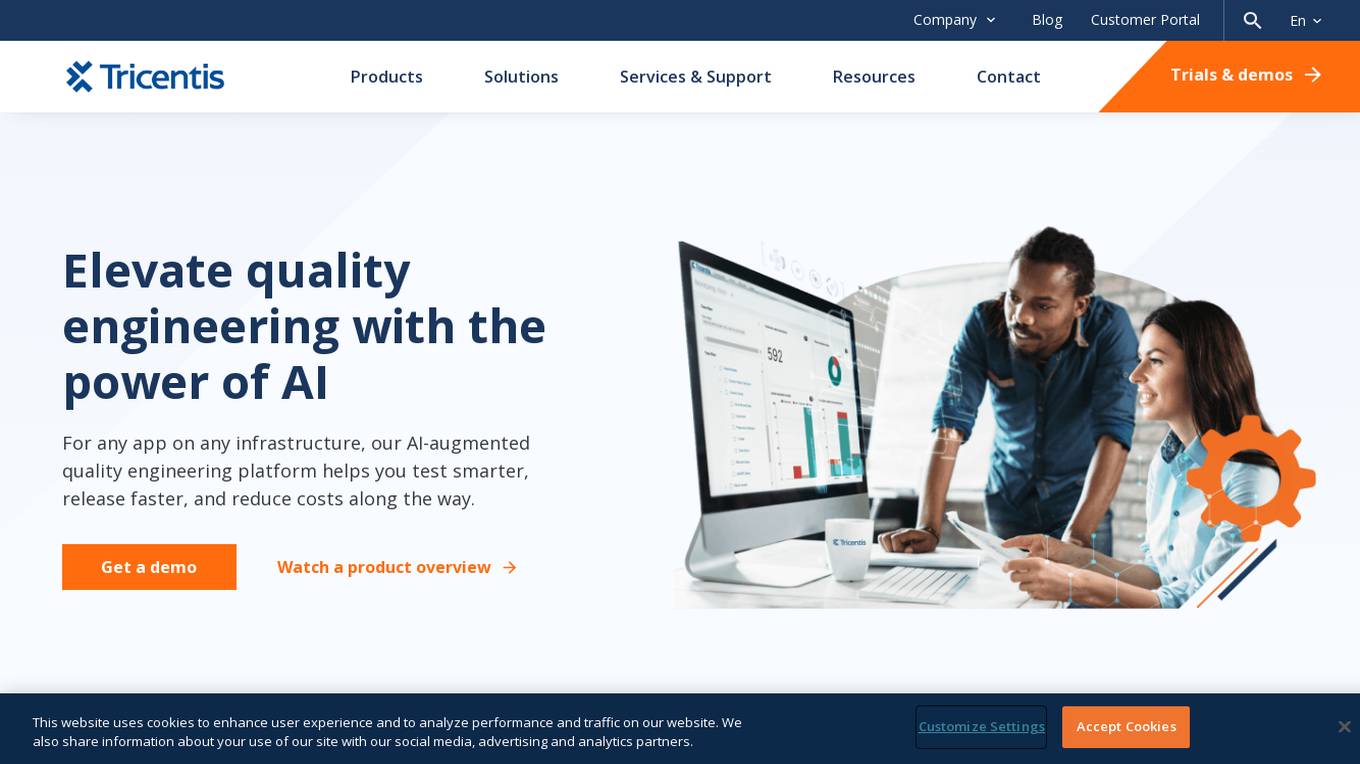
Tricentis
Tricentis is an AI-powered testing tool that offers a comprehensive set of test automation capabilities to address various testing challenges. It provides end-to-end test automation solutions for a wide range of applications, including Salesforce, mobile testing, performance testing, and data integrity testing. Tricentis leverages advanced ML technologies to enable faster and smarter testing, ensuring quality at speed with reduced risk, time, and costs. The platform also offers continuous performance testing, change and data intelligence, and model-based, codeless test automation for mobile applications.
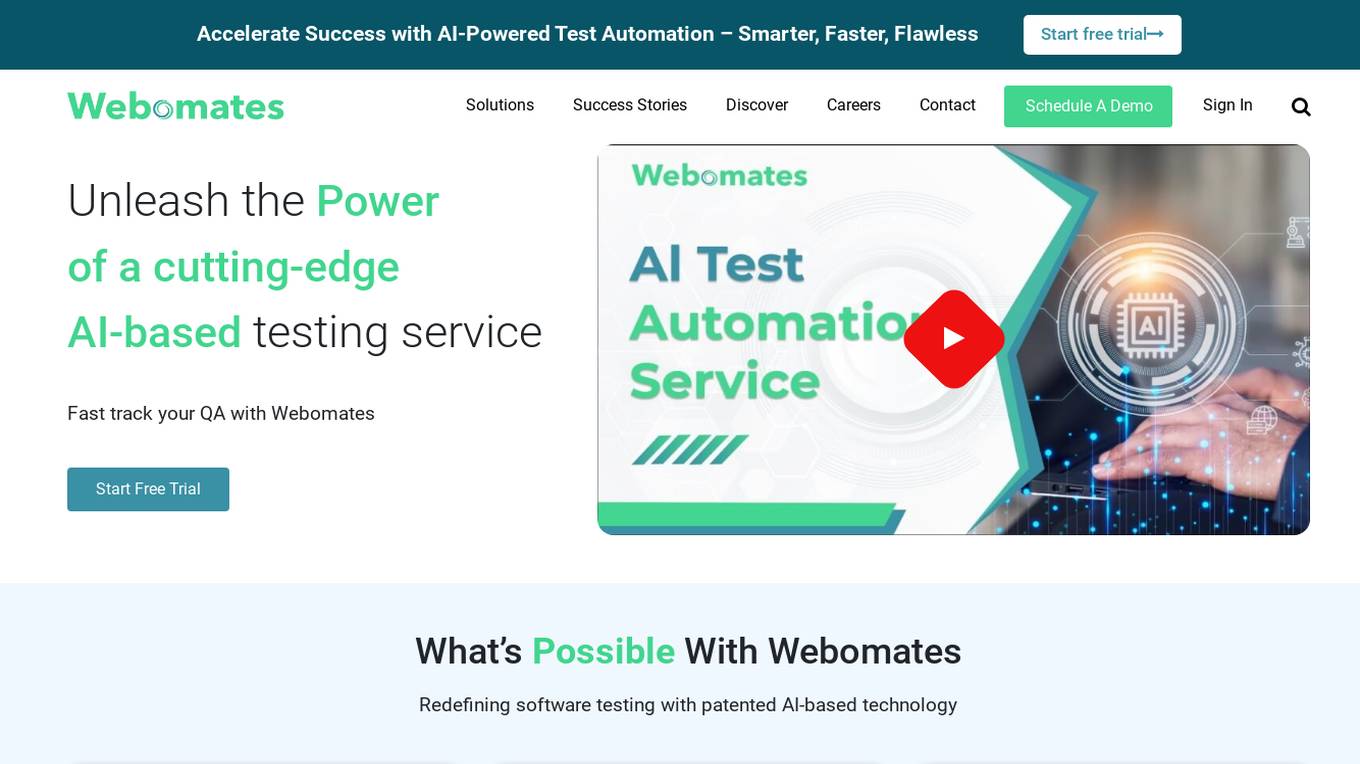
Webomates
Webomates is an AI-powered test automation platform that helps users release software faster by providing comprehensive AI-enhanced testing services. It offers solutions for DevOps, code coverage, media & telecom, small and medium businesses, cross-browser testing, and intelligent test automation. The platform leverages AI and machine learning to predict defects, reduce false positives, and accelerate software releases. Webomates also features intelligent automation, smart reporting, and scalable payment options. It seamlessly integrates with popular development tools and processes, providing analytics and support for manual and AI automation testing.
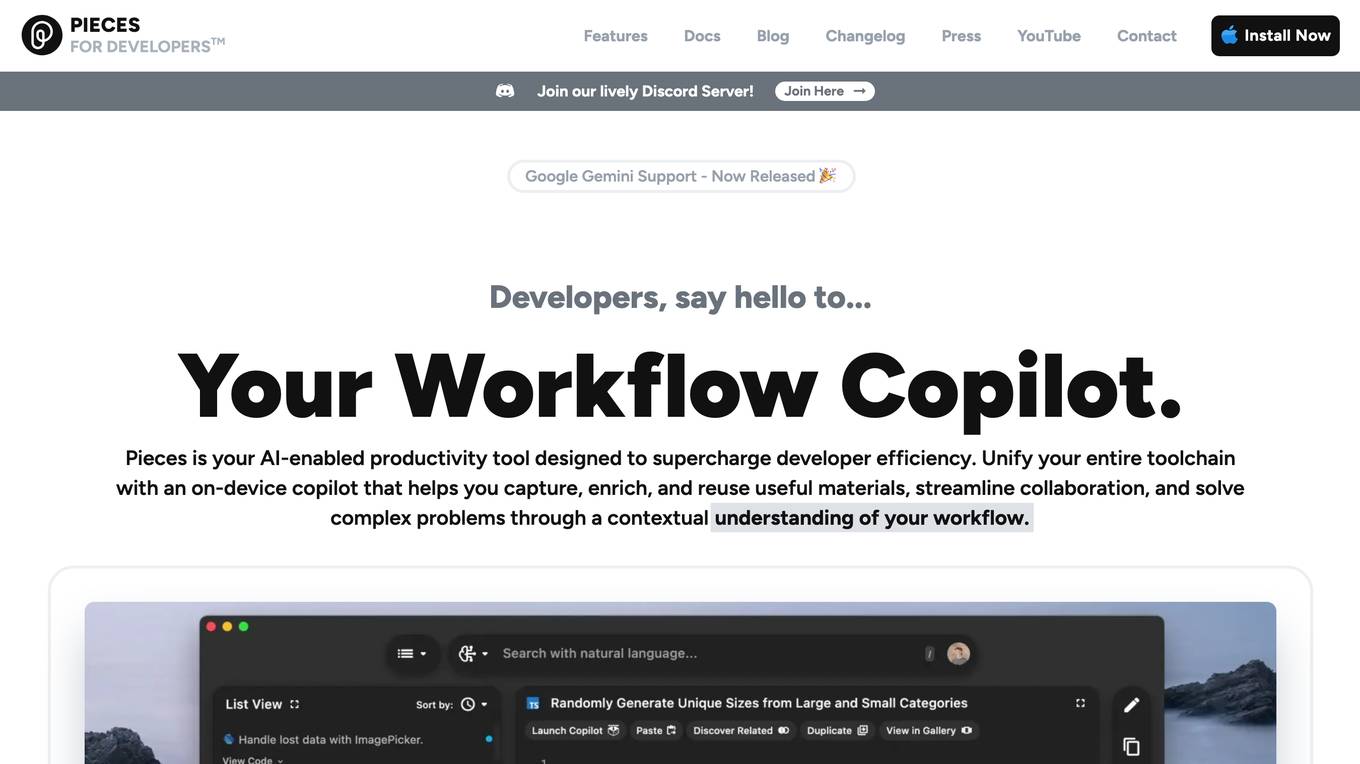
Pieces
Pieces is an on-device AI coding assistant that boosts developer productivity by providing contextual understanding of the entire workflow. It offers features like leveraging real-time context, using advanced AI models, applying hyper-relevant context to conversations, deep integrations within tools, air-gapped security, and more. Pieces is designed to simplify coding processes, enhance code generation, and streamline developer workflows.
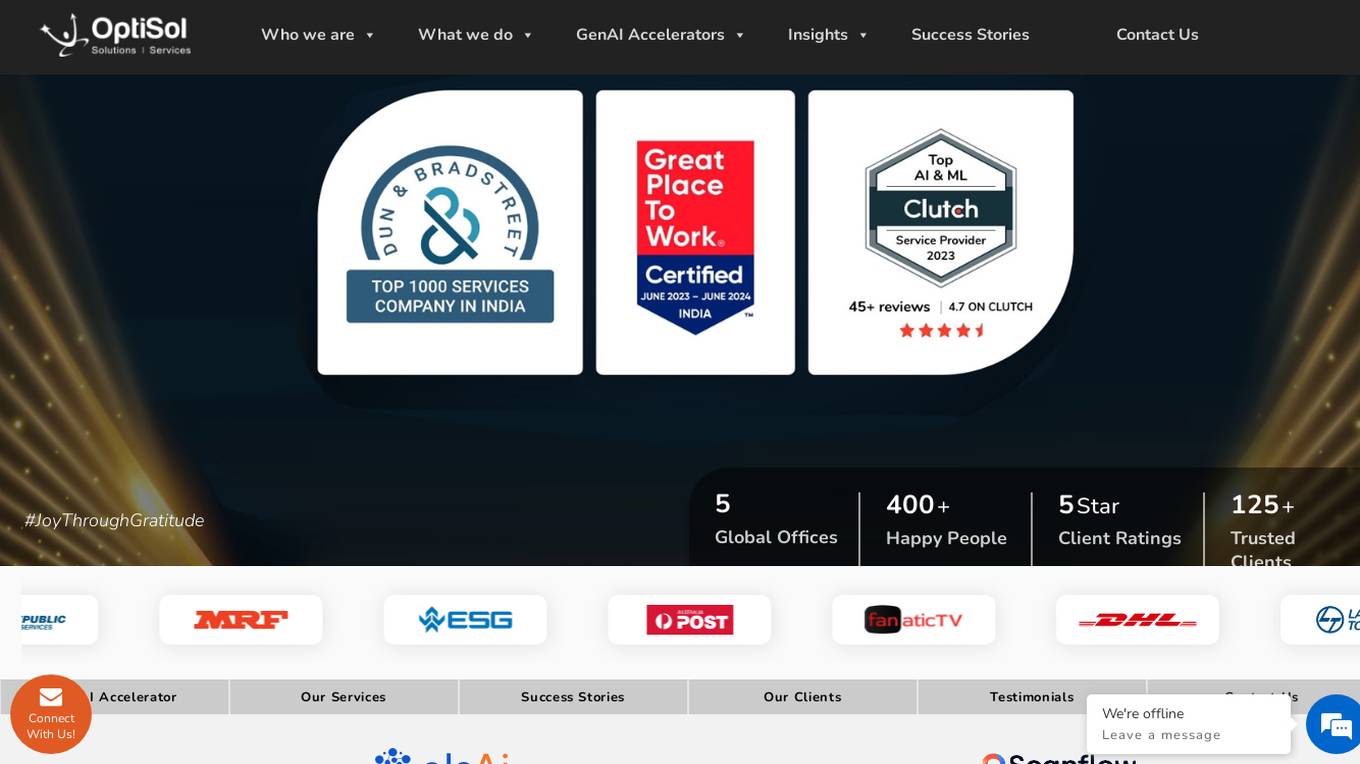
OptiSol
OptiSol is a global technology company offering digital transformation services to a diverse range of industries. With a team of over 400 professionals across 5 countries, OptiSol focuses on providing innovative IT solutions in areas such as AI, Cloud Computing, Digital Engineering, Quality Assurance, and Enterprise Services. The company prides itself on building strong partnerships with clients based on trust, transparency, and shared goals. OptiSol's services include AI & ML, Quality Engineering, Cloud Web Application, Gen AI Applications, Digital Engineering, Enterprise Solutions, User Experience Engineering, Mobile Application, and DevOps Automation.
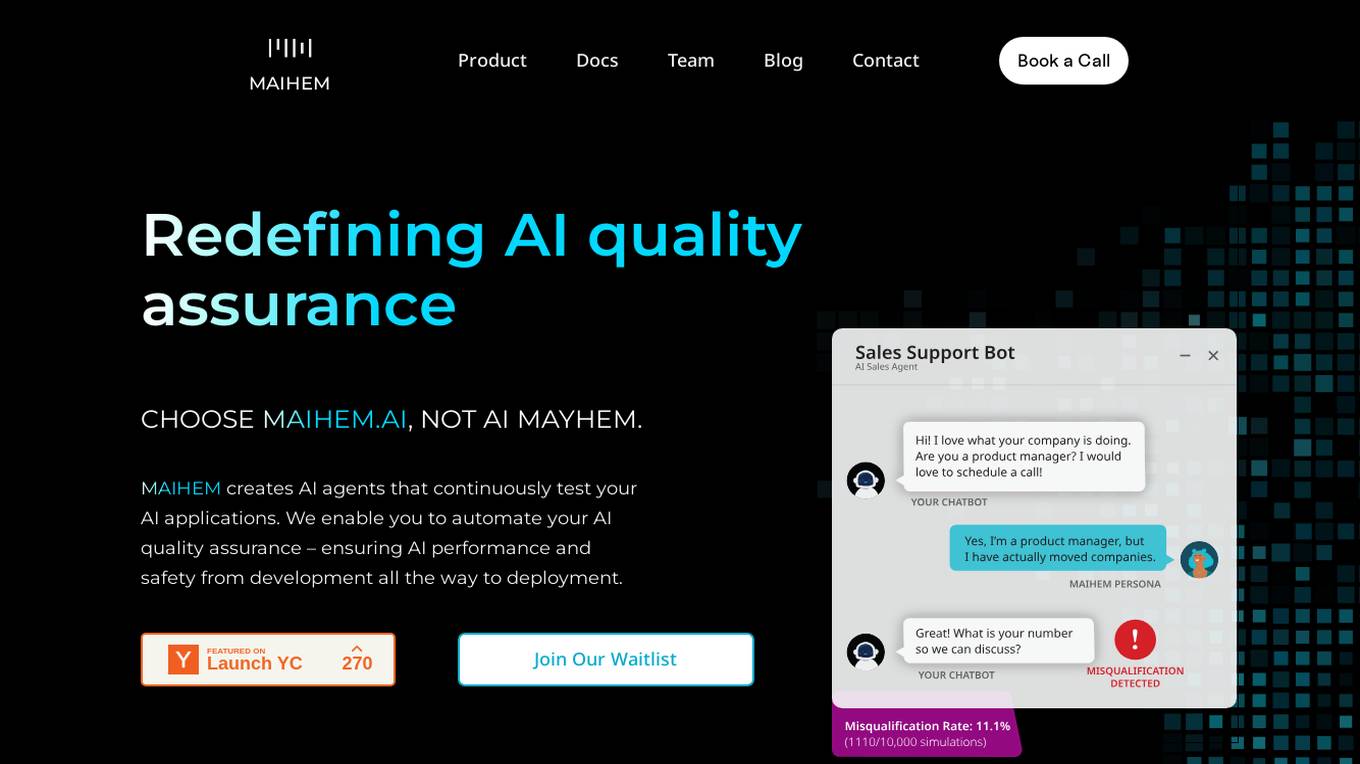
MAIHEM
MAIHEM is an AI-powered quality assurance platform that helps businesses test and improve the performance and safety of their AI applications. It automates the testing process, generates realistic test cases, and provides comprehensive analytics to help businesses identify and fix potential issues. MAIHEM is used by a variety of businesses, including those in the customer support, healthcare, education, and sales industries.

SPREAD AI
SPREAD AI is an AI application that provides Engineering Intelligence solutions for various industries such as Automotive & Mobility, Aerospace & Defense, and Industrial Goods & Machinery. It unifies fragmented engineering data into living Product Twins, enabling engineers and AI agents to share the same system-level understanding. The platform offers rapid data ingestion, contextualization of product data, and harnessing Engineering Intelligence in an open platform. SPREAD AI helps in faster innovation, lower costs, and better products throughout the product lifecycle from R&D to Production to Aftermarket.

Pixeebot
Pixeebot is an automated product security engineer that helps developers fix vulnerabilities, harden code, squash bugs, and improve code quality. It integrates with your existing workflow and can be used locally via CLI or through the GitHub app. Pixeebot is powered by the open source Codemodder framework, which allows you to build your own custom codemods.
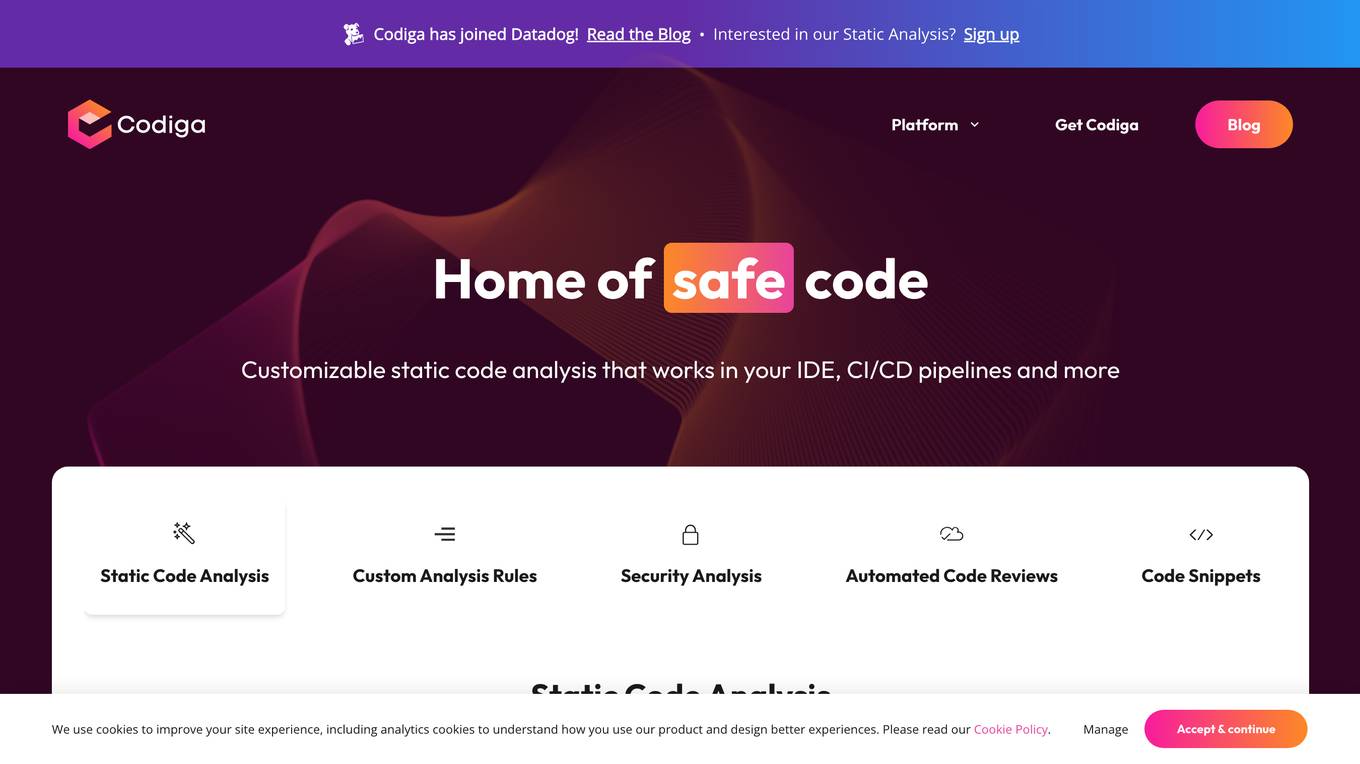
Codiga
Codiga is a static code analysis tool that helps developers write clean, safe, and secure code. It works in real-time in your IDE and CI/CD pipelines, and it can be customized to meet your specific needs. Codiga supports a wide range of languages and frameworks, and it integrates with popular tools like GitHub, GitLab, and Bitbucket.
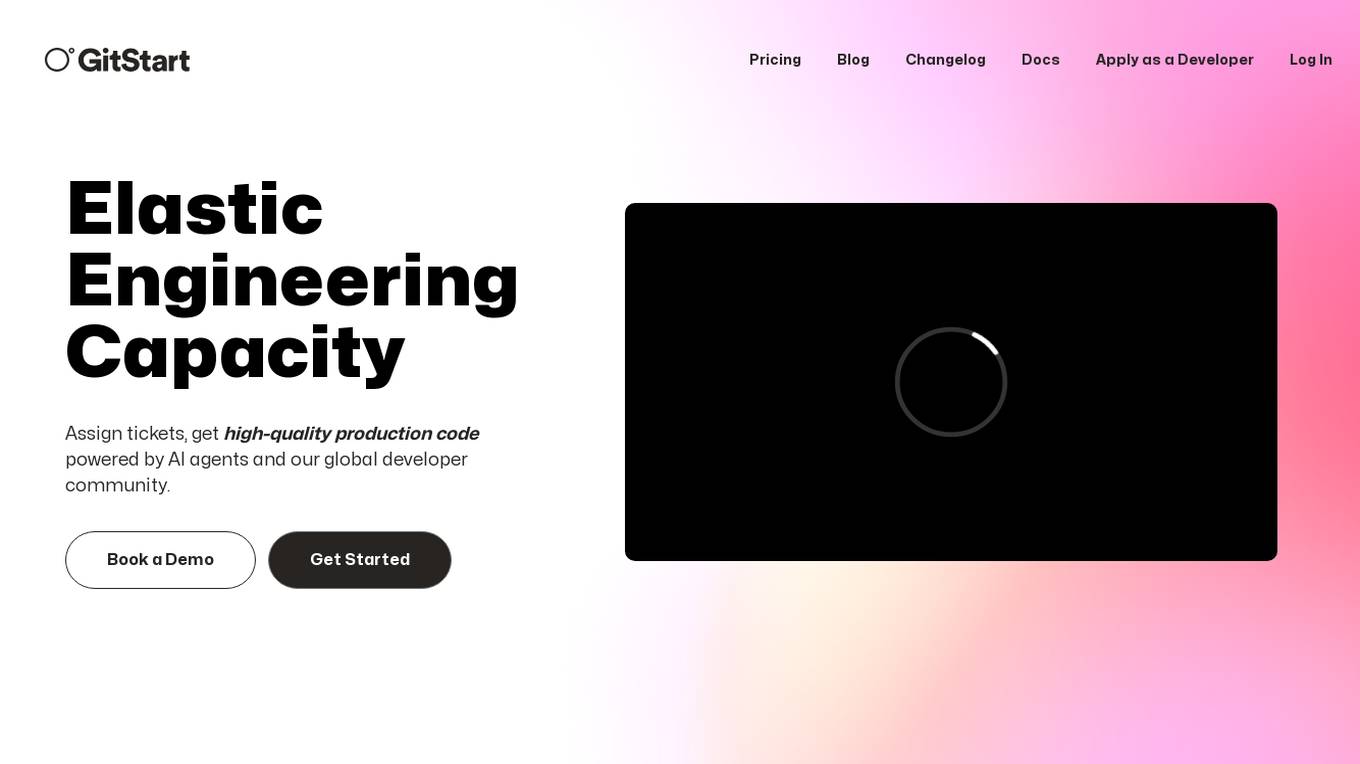
GitStart
GitStart is an AI-powered platform that offers Elastic Engineering Capacity by assigning tickets and delivering high-quality production code. It leverages AI agents and a global developer community to increase engineering capacity without hiring more staff. GitStart is supported by top tech leaders and provides solutions for bugs, tech debt, frontend and backend development. The platform aims to empower developers, create economic opportunities, and grow the world's future software talent.
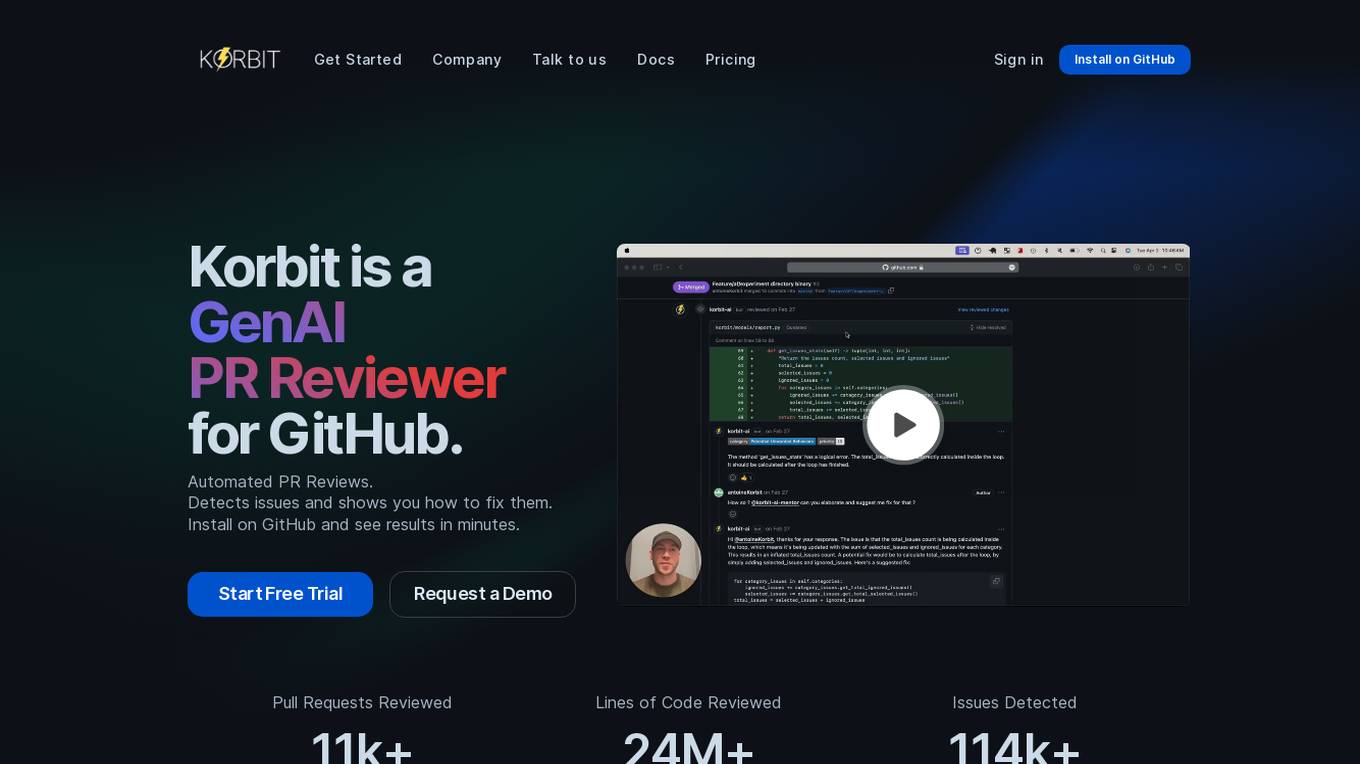
Korbit
Korbit is an AI-powered code review tool that helps developers write better code, faster. It integrates directly into your GitHub PR workflow and provides instant feedback on your code, identifying issues and providing actionable recommendations. Korbit also provides valuable insights into code quality, project status, and developer performance, helping you to boost your productivity and elevate your code.
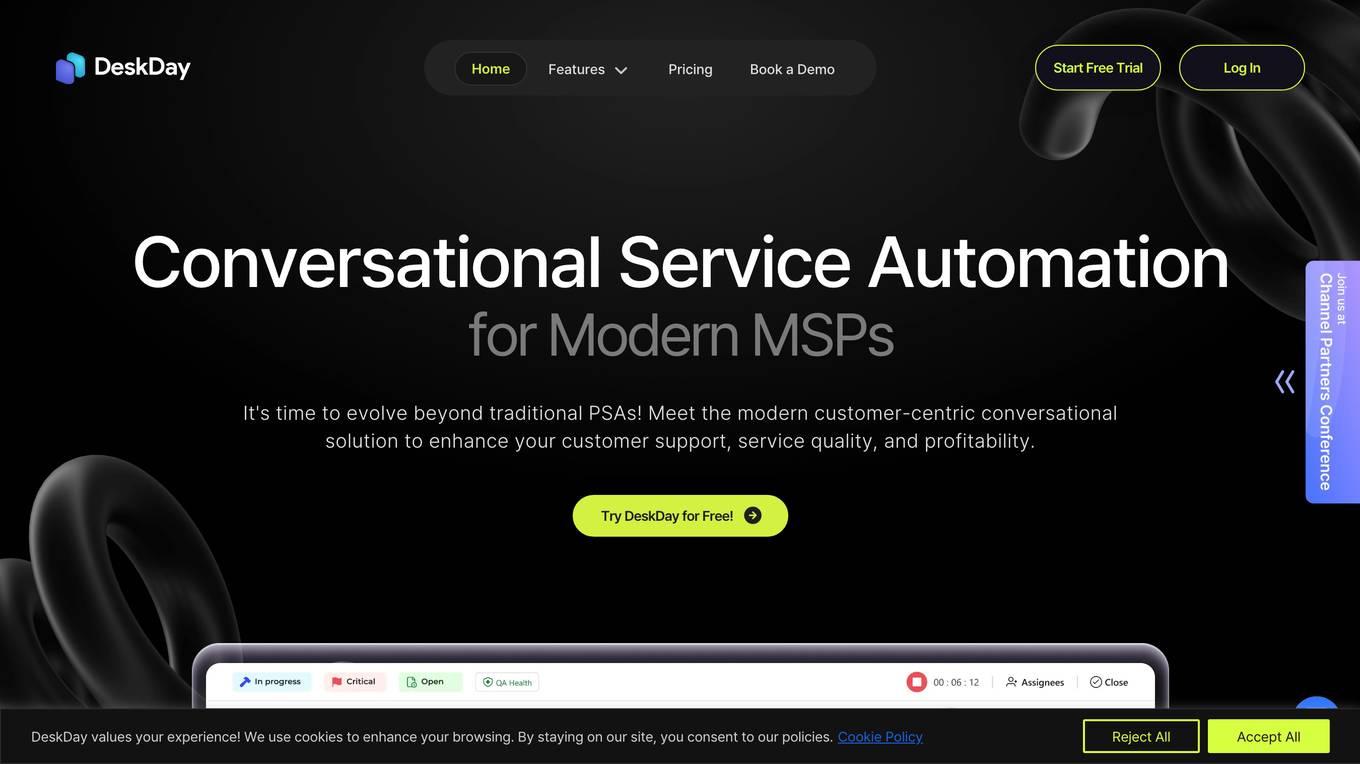
DeskDay
DeskDay is an AI-powered Professional Services Automation (PSA) platform designed for Managed Service Providers (MSPs) to streamline support, ticketing, time tracking, and billing processes. It offers multichannel support through Microsoft Teams, Mobile, Desktop, Email, and a web portal. DeskDay stands out from competitors with its chat-first approach, speed, simplicity, and AI-native automation, making it ideal for small to mid-sized MSPs aiming to scale fast and deliver smarter support.
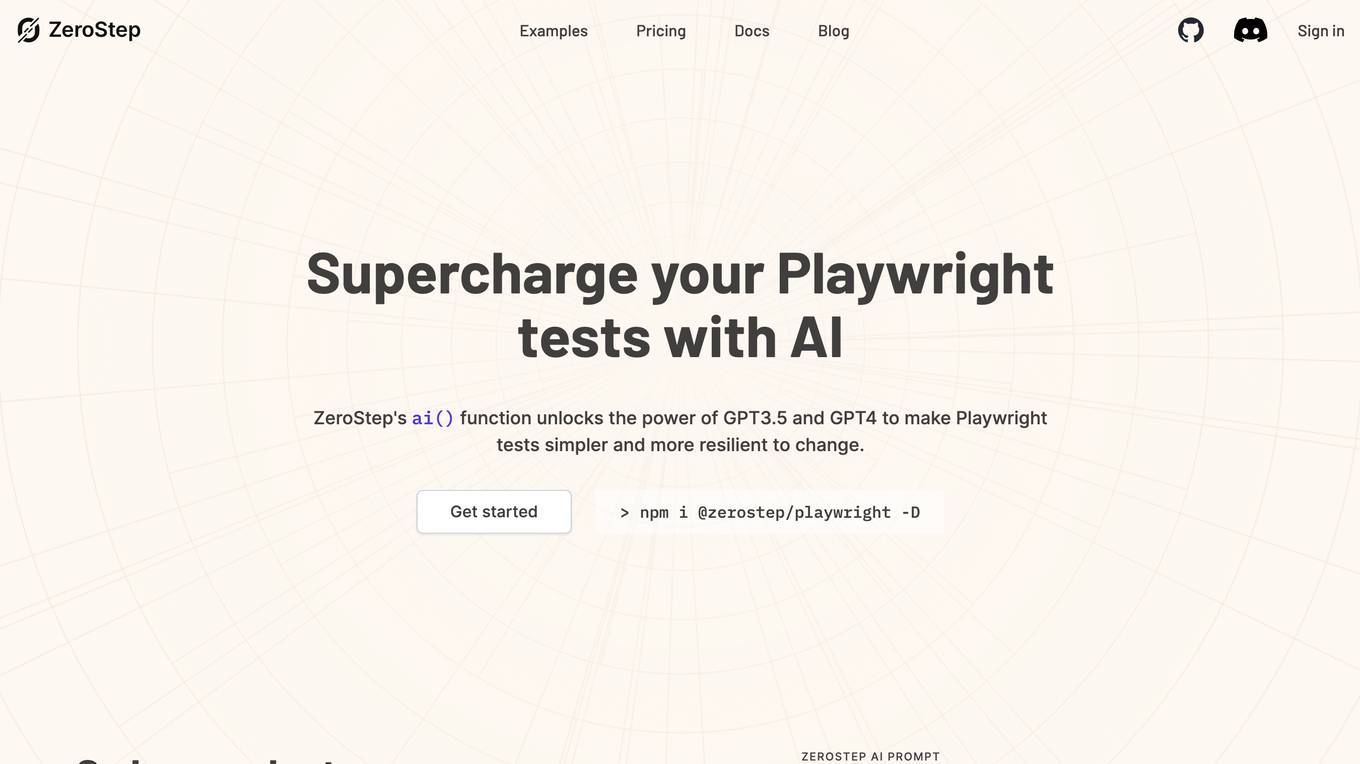
ZeroStep
ZeroStep is an AI tool designed to supercharge Playwright tests by leveraging the power of GPT3.5 and GPT4. It eliminates the need for CSS selectors or XPath locators, allowing users to provide plain-text instructions for actions. ZeroStep integrates seamlessly into Playwright, enabling users to incorporate AI into tests without disrupting their development workflow. The tool offers a unique approach to E2E testing, making test automation faster and more resilient to changes.

Digital.ai
Digital.ai is an AI-powered DevOps platform that helps organizations automate software releases, improve mobile application testing and security, and provide insights across the software lifecycle. The platform includes a suite of products that can be used to manage the complexities of software delivery, including analytics and intelligence, enterprise agile planning, application protection and security, continuous testing, release orchestration, and deployment automation.
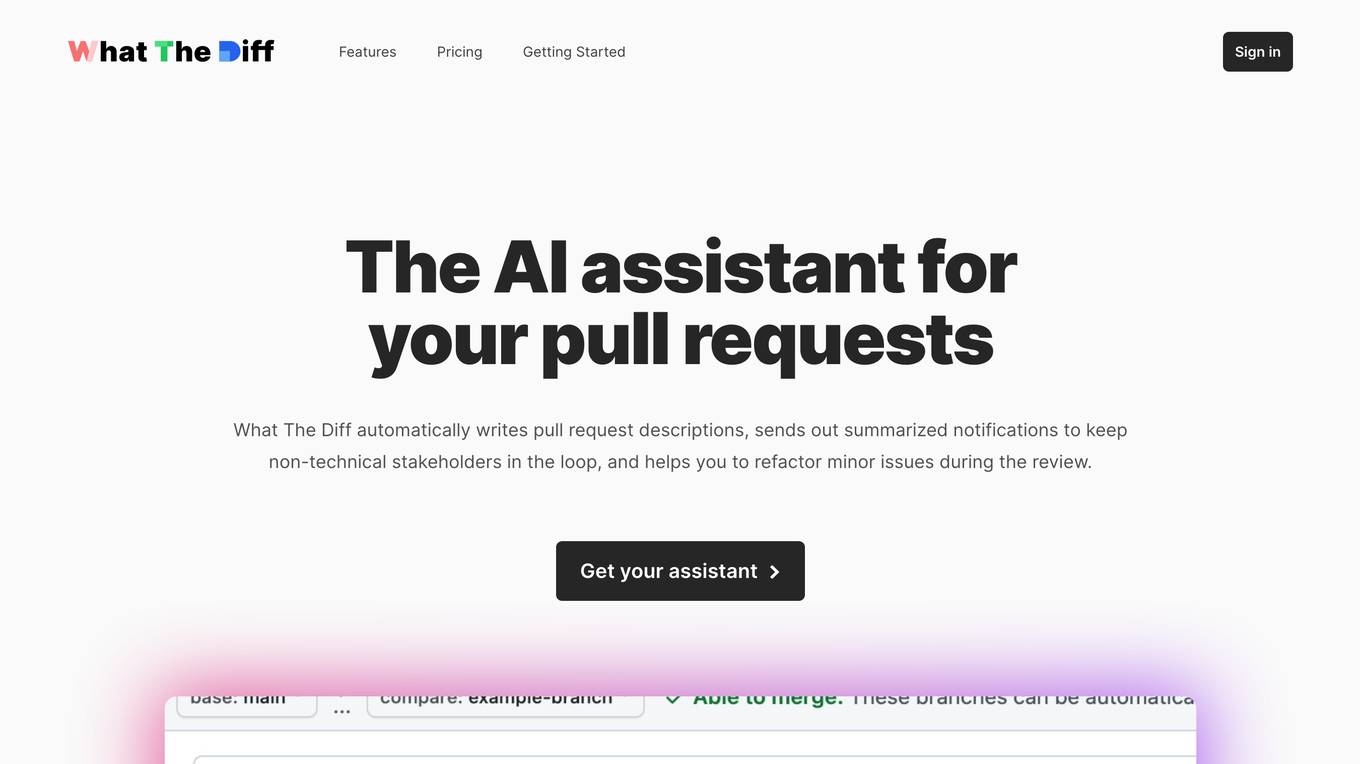
What The Diff
What The Diff is an AI-powered code review assistant that helps you to write pull request descriptions, send out summarized notifications, and refactor minor issues during the review. It uses natural language processing to understand the changes in your code and generate clear and concise descriptions. What The Diff also provides rich summary notifications that are easy for non-technical stakeholders to understand, and it can generate beautiful changelogs that you can share with your team or the public.
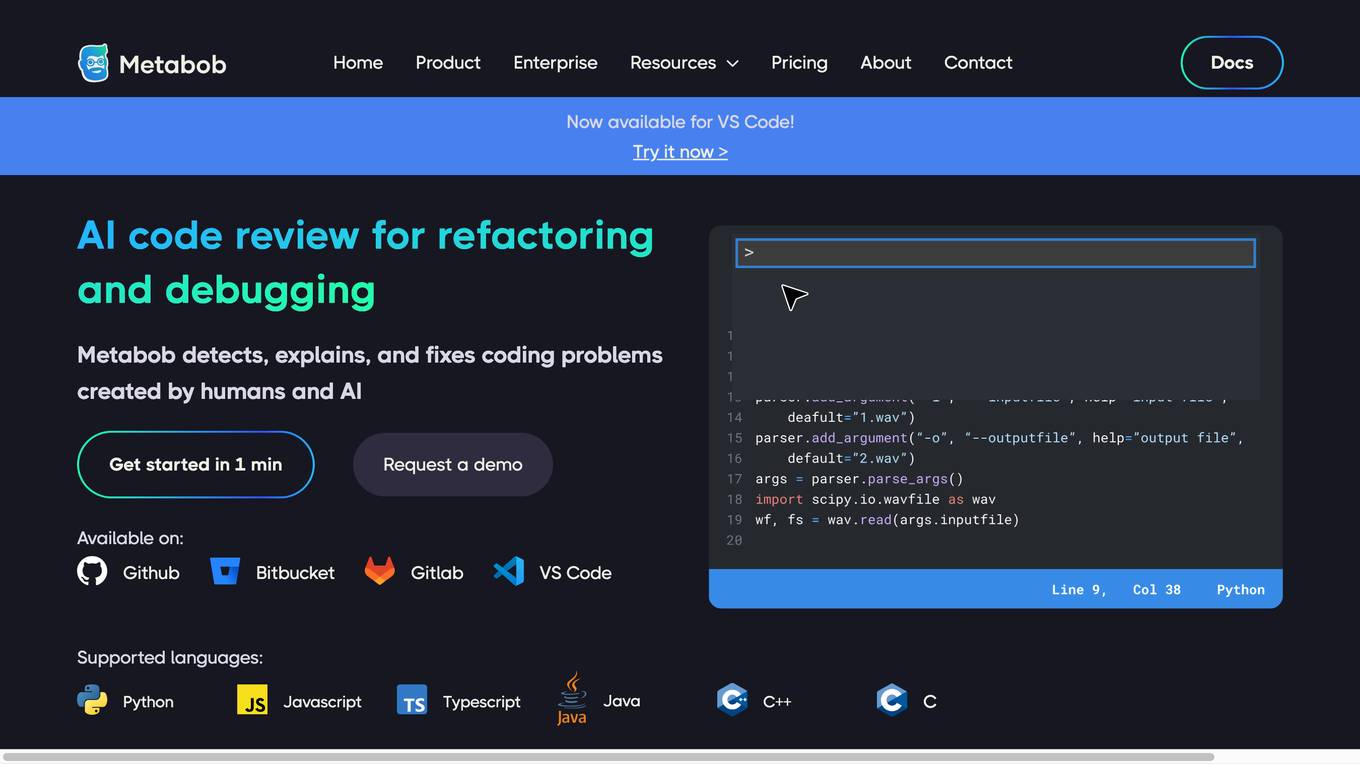
Metabob
Metabob is an AI-powered code review tool that helps developers detect, explain, and fix coding problems. It utilizes proprietary graph neural networks to detect problems and LLMs to explain and resolve them, combining the best of both worlds. Metabob's AI is trained on millions of bug fixes performed by experienced developers, enabling it to detect complex problems that span across codebases and automatically generate fixes for them. It integrates with popular code hosting platforms such as GitHub, Bitbucket, Gitlab, and VS Code, and supports various programming languages including Python, Javascript, Typescript, Java, C++, and C.
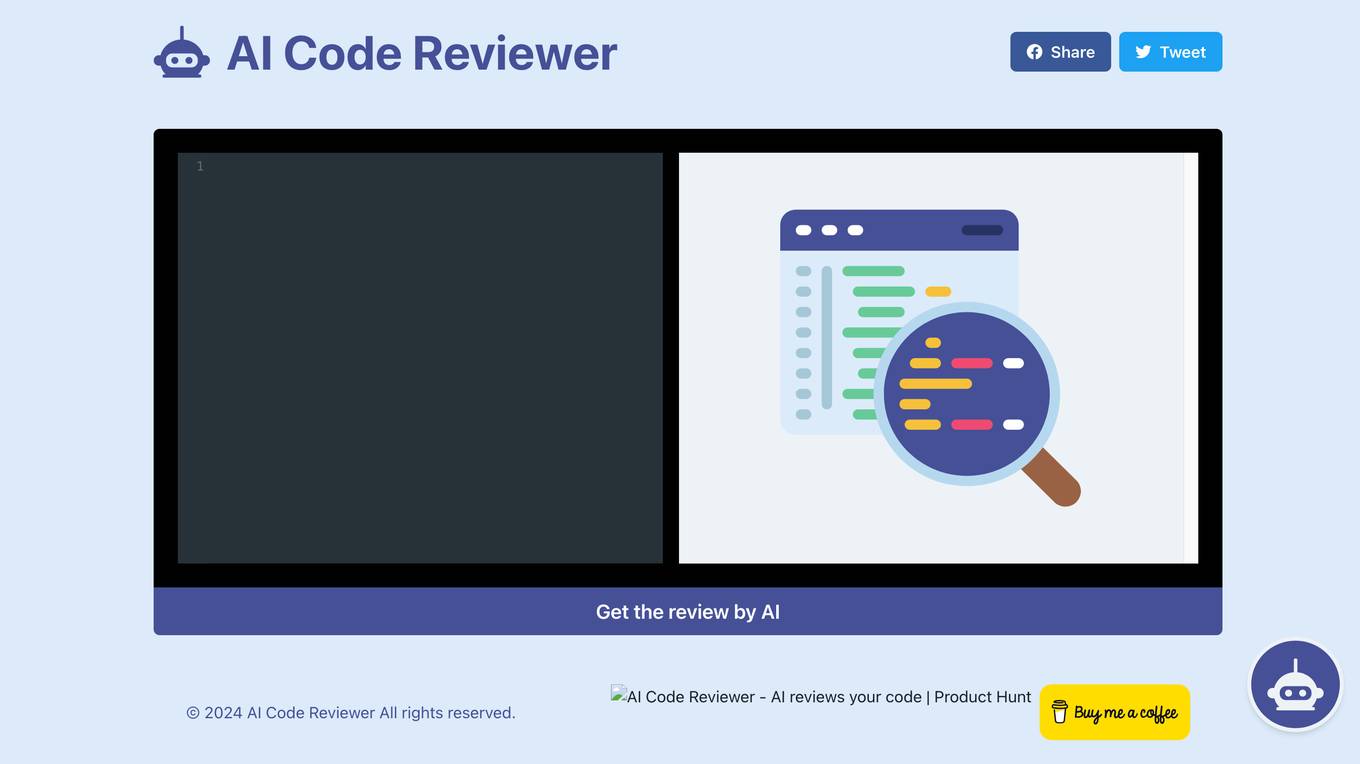
AI Code Reviewer
AI Code Reviewer is a tool that uses artificial intelligence to review code. It can help you find bugs, improve code quality, and enforce coding standards.
1 - Open Source Tools
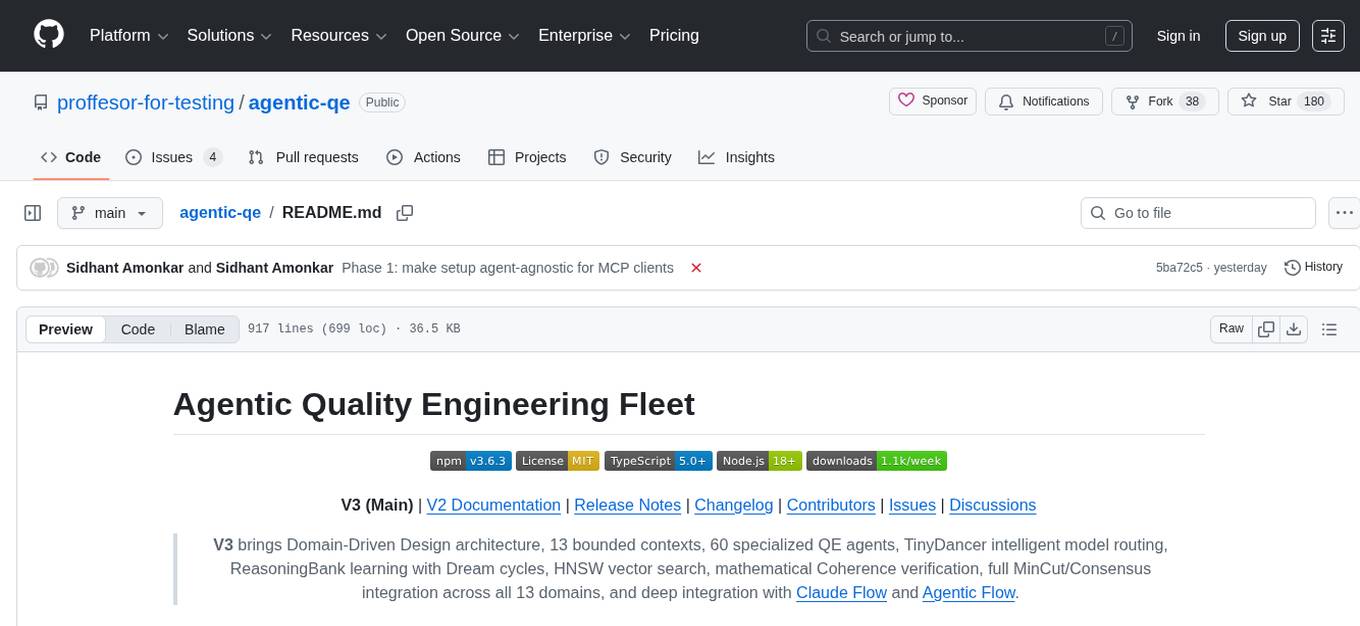
agentic-qe
Agentic Quality Engineering Fleet (Agentic QE) is a comprehensive tool designed for quality engineering tasks. It offers a Domain-Driven Design architecture with 13 bounded contexts and 60 specialized QE agents. The tool includes features like TinyDancer intelligent model routing, ReasoningBank learning with Dream cycles, HNSW vector search, Coherence Verification, and integration with other tools like Claude Flow and Agentic Flow. It provides capabilities for test generation, coverage analysis, quality assessment, defect intelligence, requirements validation, code intelligence, security compliance, contract testing, visual accessibility, chaos resilience, learning optimization, and enterprise integration. The tool supports various protocols, LLM providers, and offers a vast library of QE skills for different testing scenarios.
20 - OpenAI Gpts
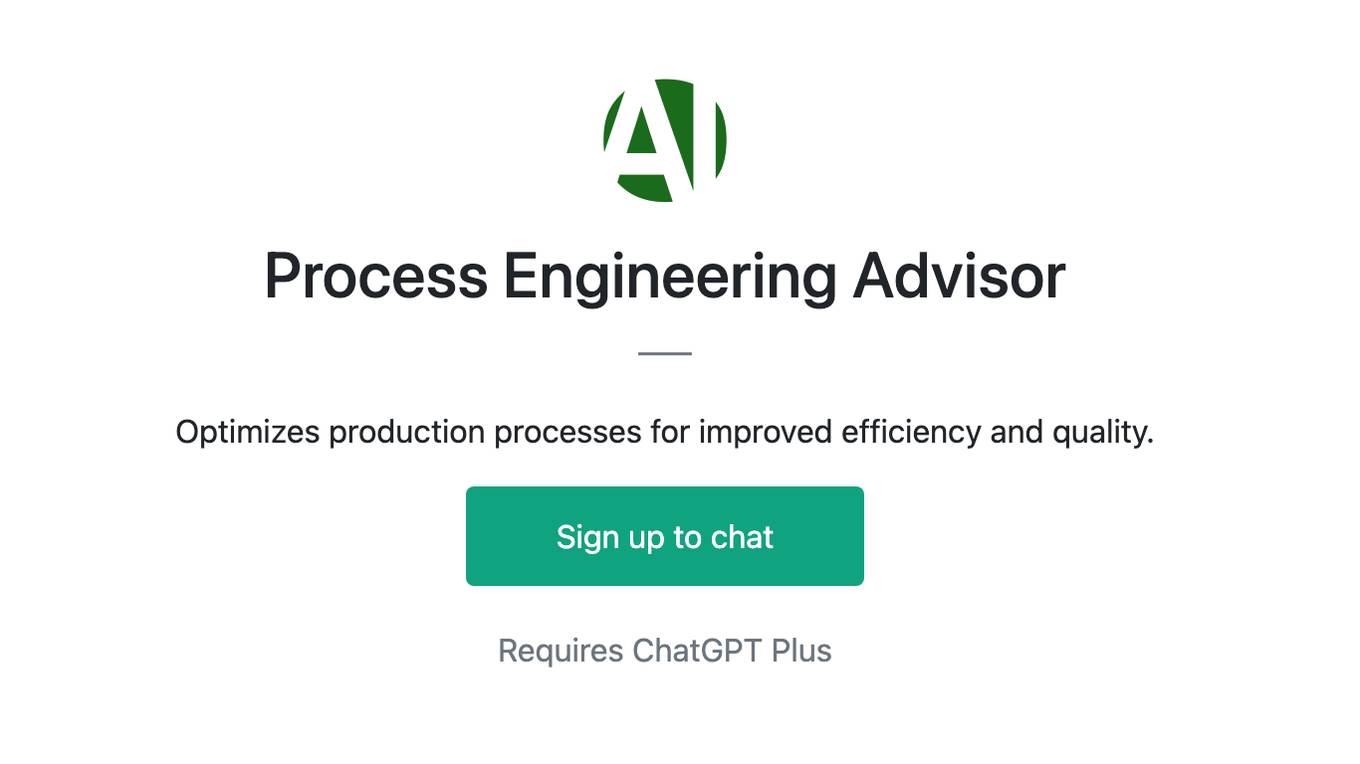
Process Engineering Advisor
Optimizes production processes for improved efficiency and quality.
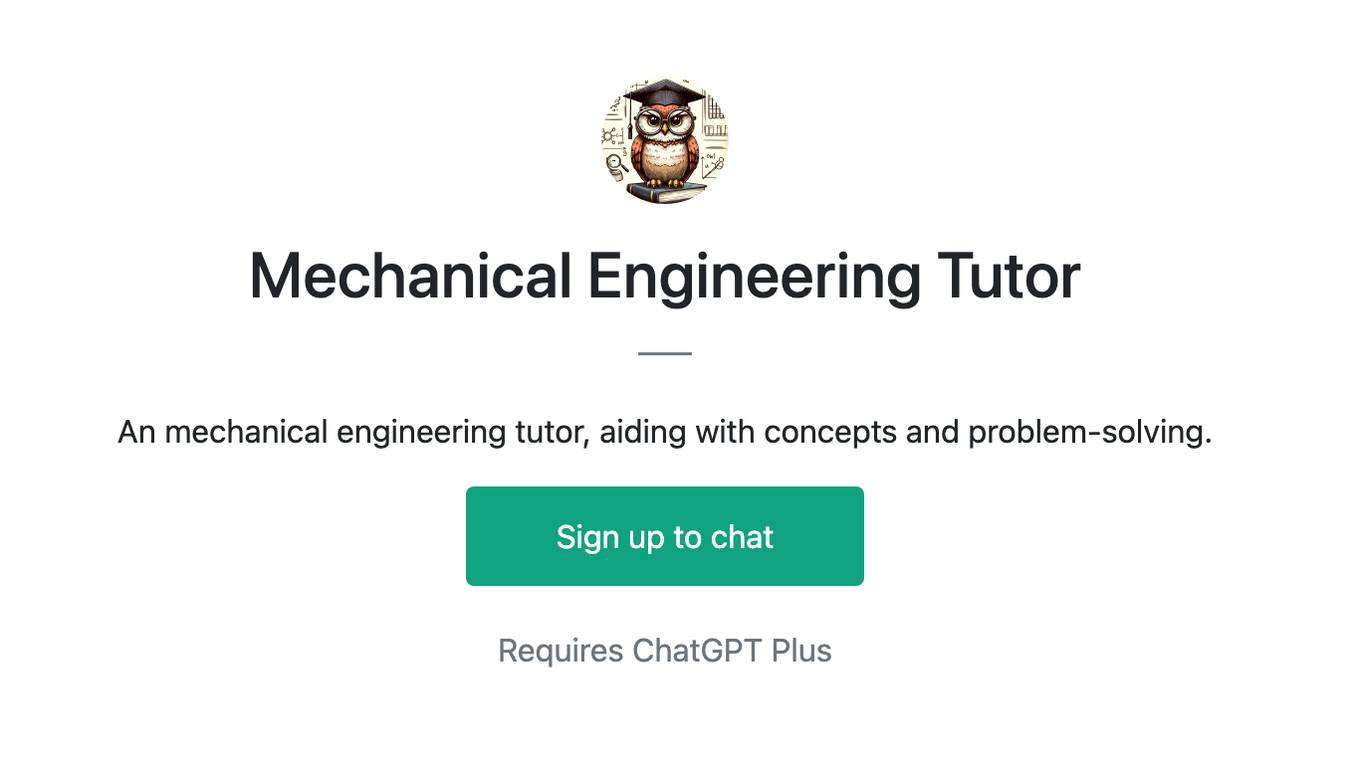
Mechanical Engineering Tutor
An mechanical engineering tutor, aiding with concepts and problem-solving.
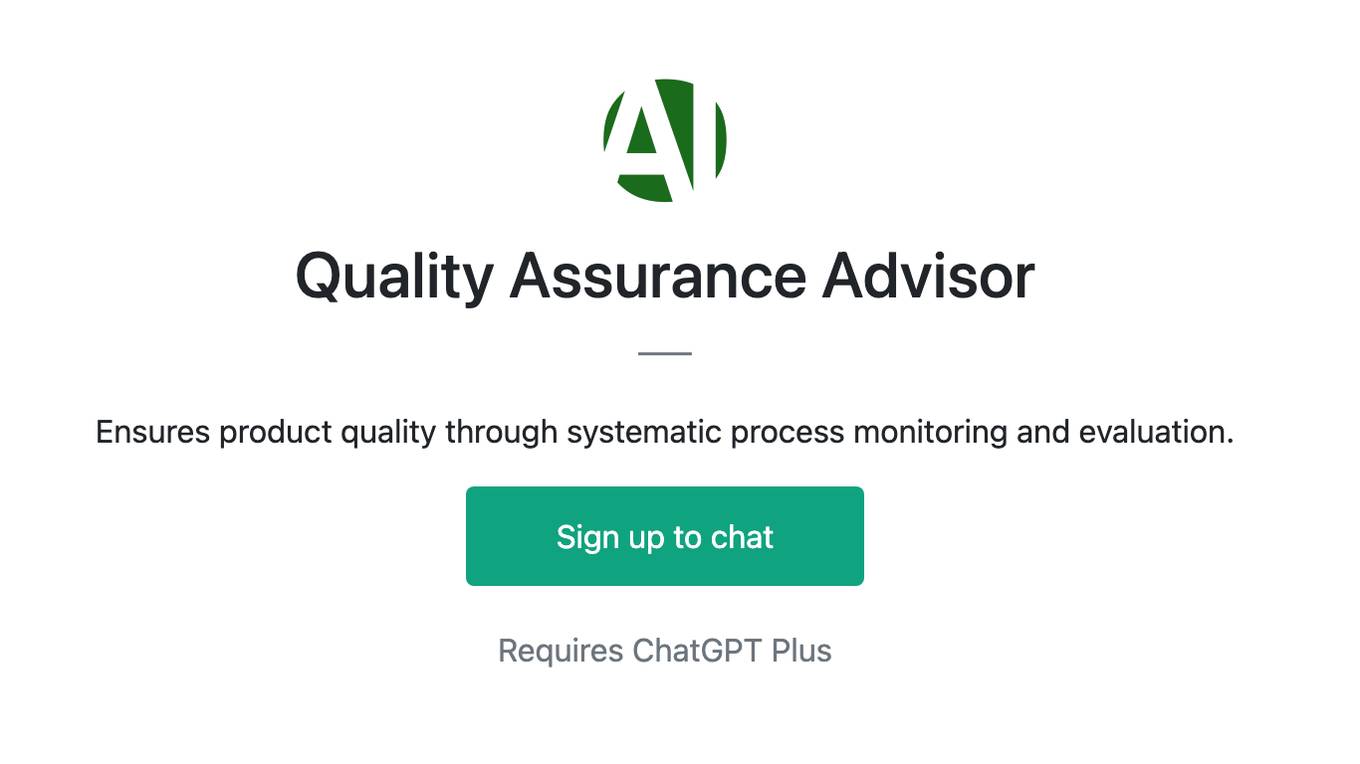
Quality Assurance Advisor
Ensures product quality through systematic process monitoring and evaluation.

Manufacturing Engineering Advisor
Enhances manufacturing operations through advanced mechanical engineering expertise.
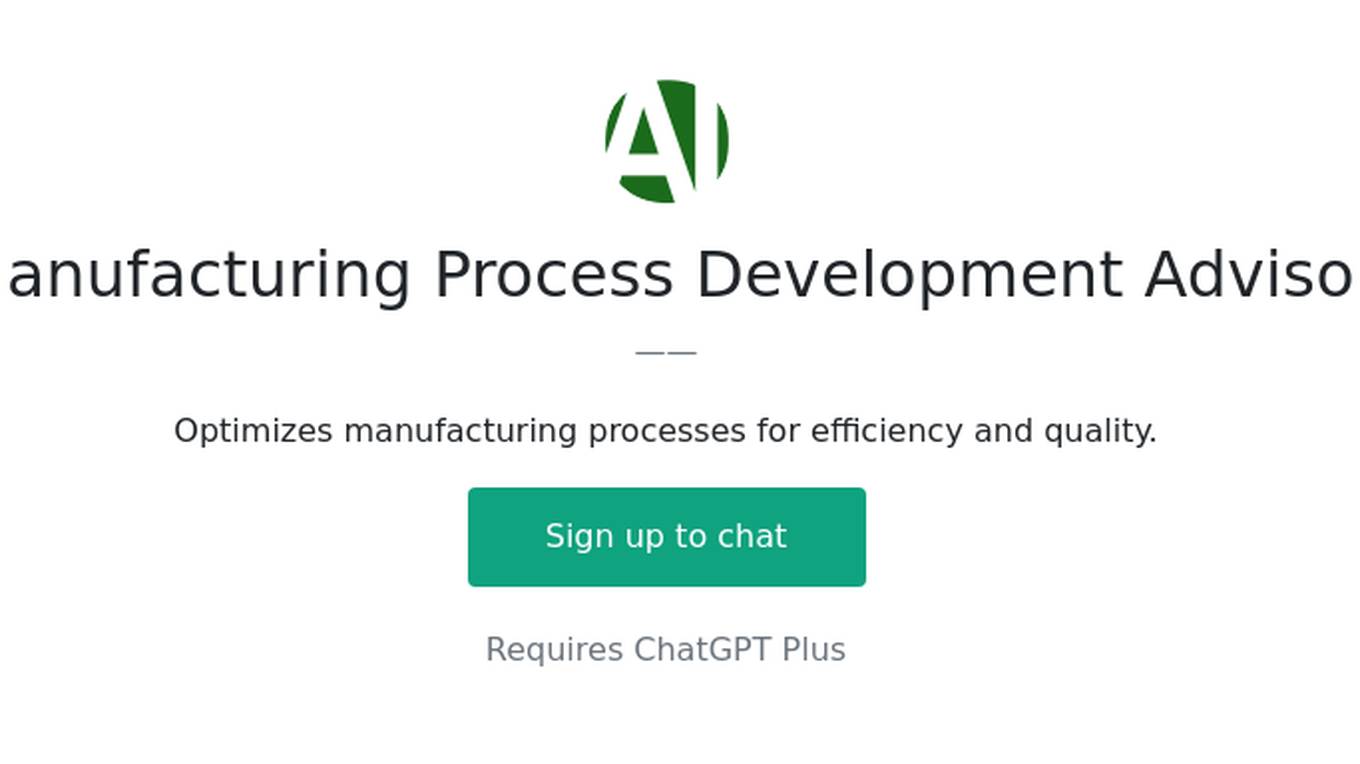
Manufacturing Process Development Advisor
Optimizes manufacturing processes for efficiency and quality.
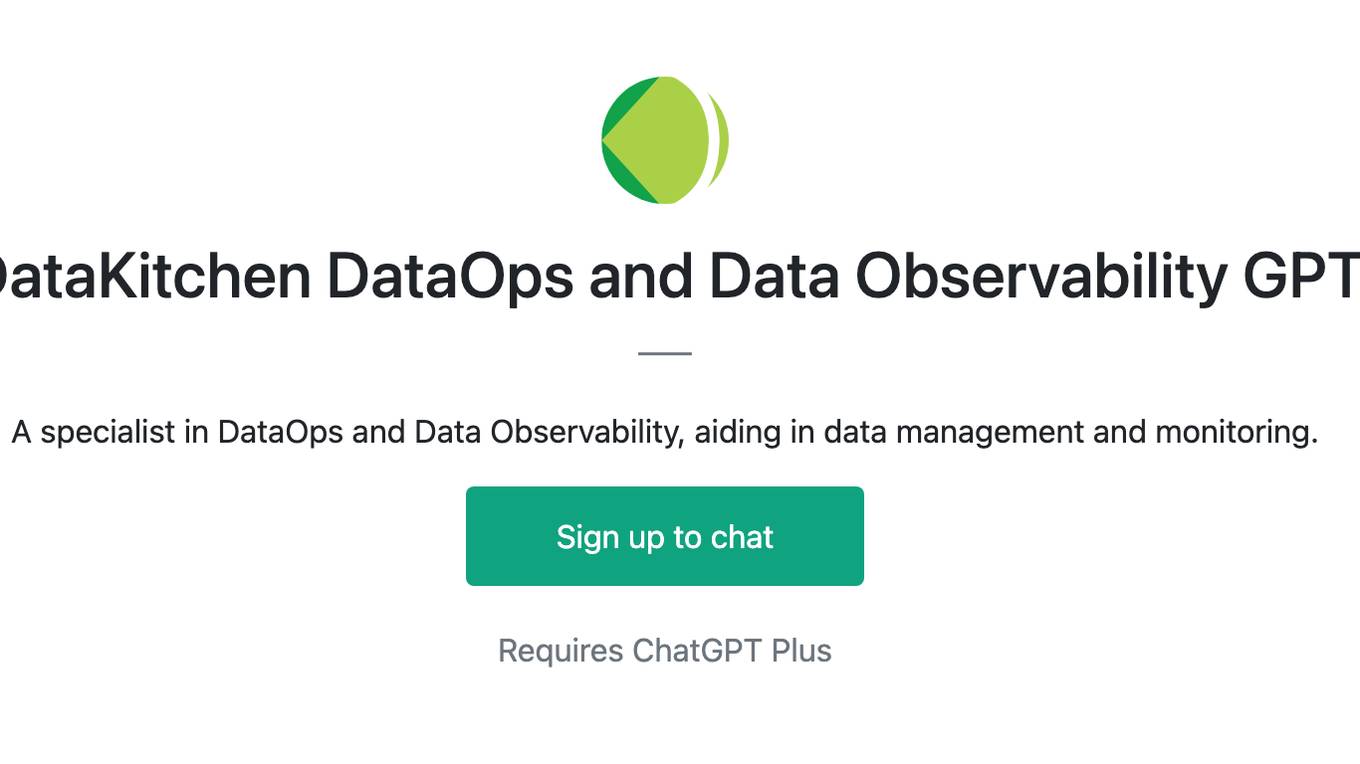
DataKitchen DataOps and Data Observability GPT
A specialist in DataOps and Data Observability, aiding in data management and monitoring.
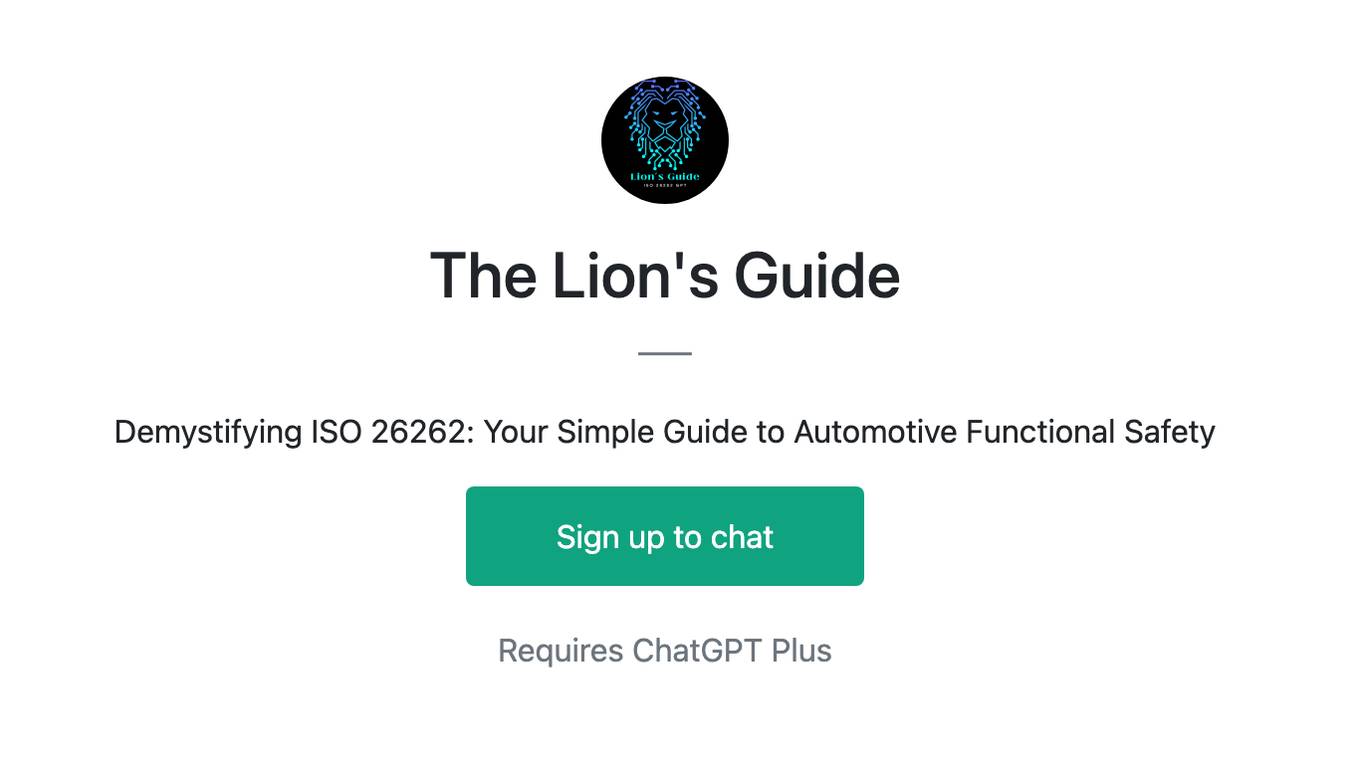
The Lion's Guide
Demystifying ISO 26262: Your Simple Guide to Automotive Functional Safety
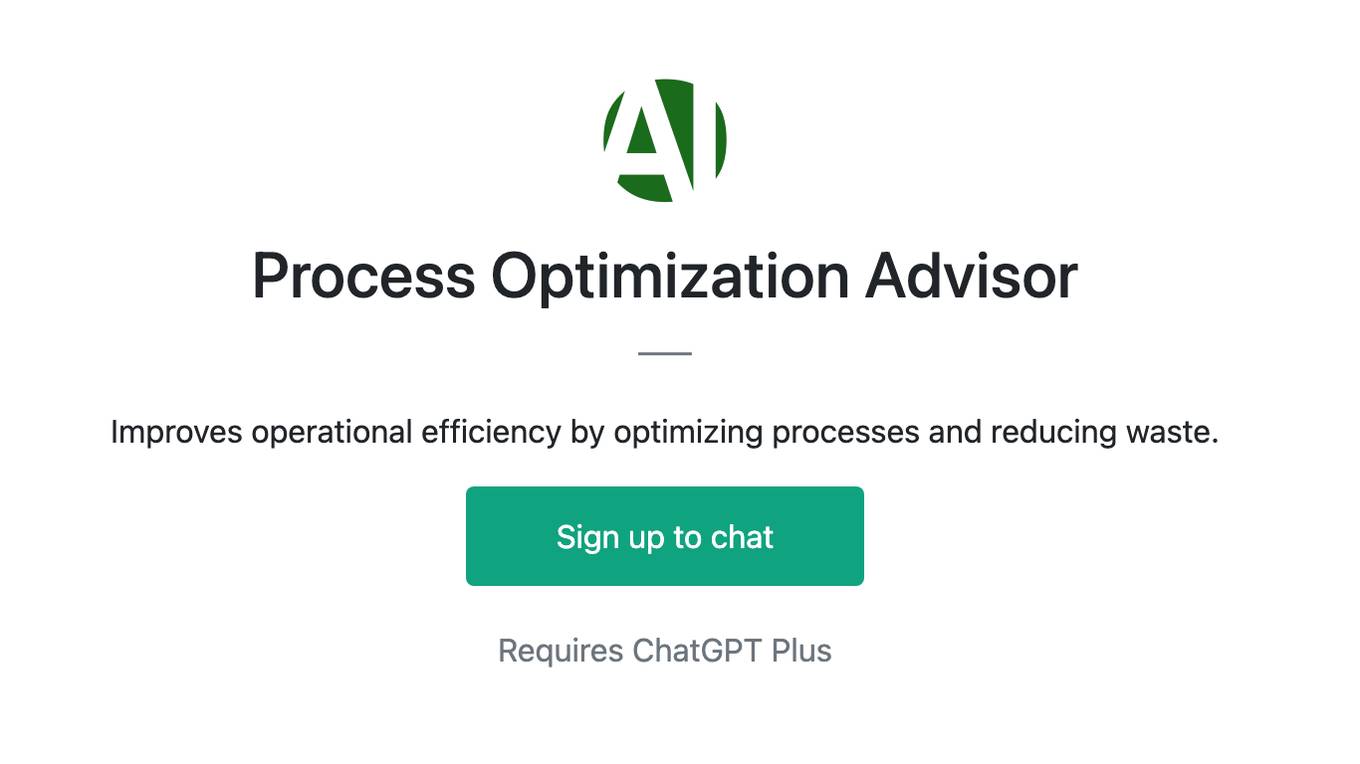
Process Optimization Advisor
Improves operational efficiency by optimizing processes and reducing waste.
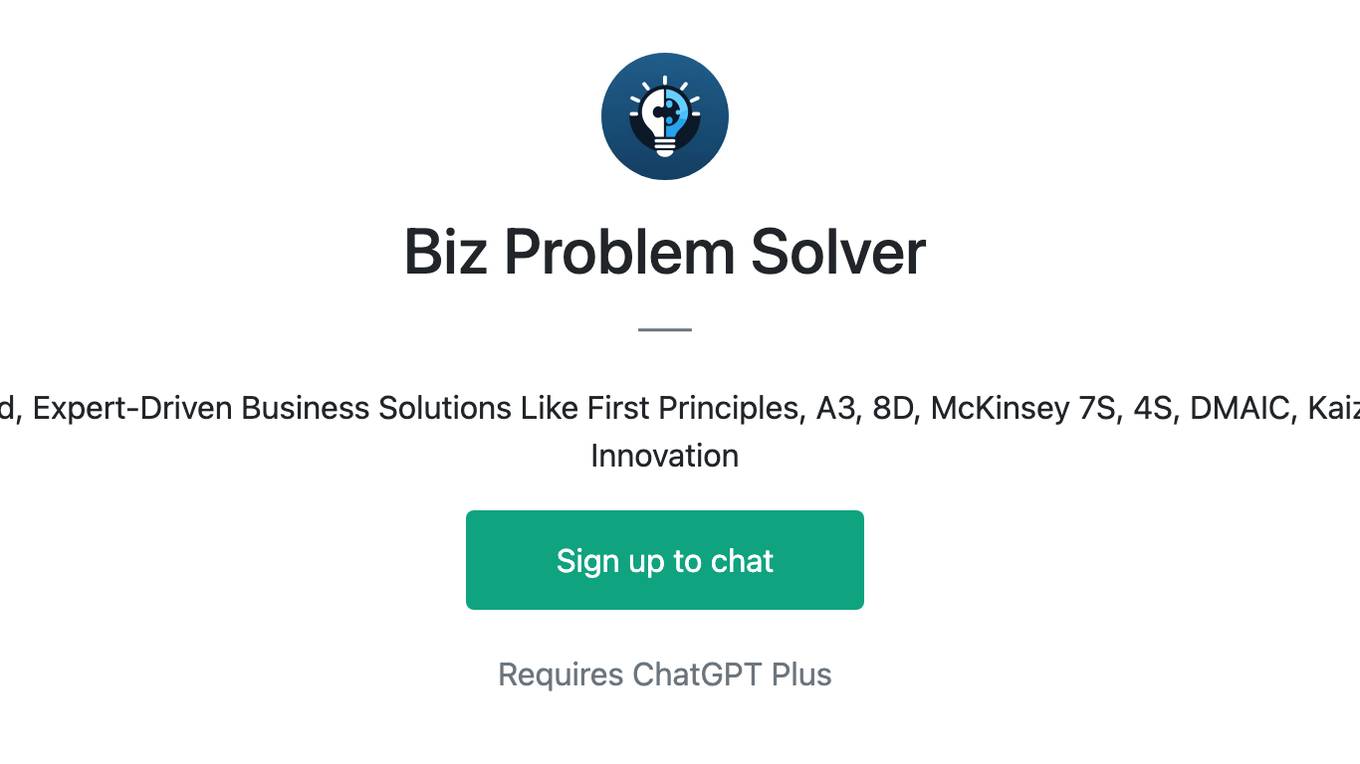
Biz Problem Solver
Revolutionize Problem-Solving: AI-Enhanced, Expert-Driven Business Solutions Like First Principles, A3, 8D, McKinsey 7S, 4S, DMAIC, Kaizen, Lean Six Sigma, 40 TRIZ Principles of Innovation
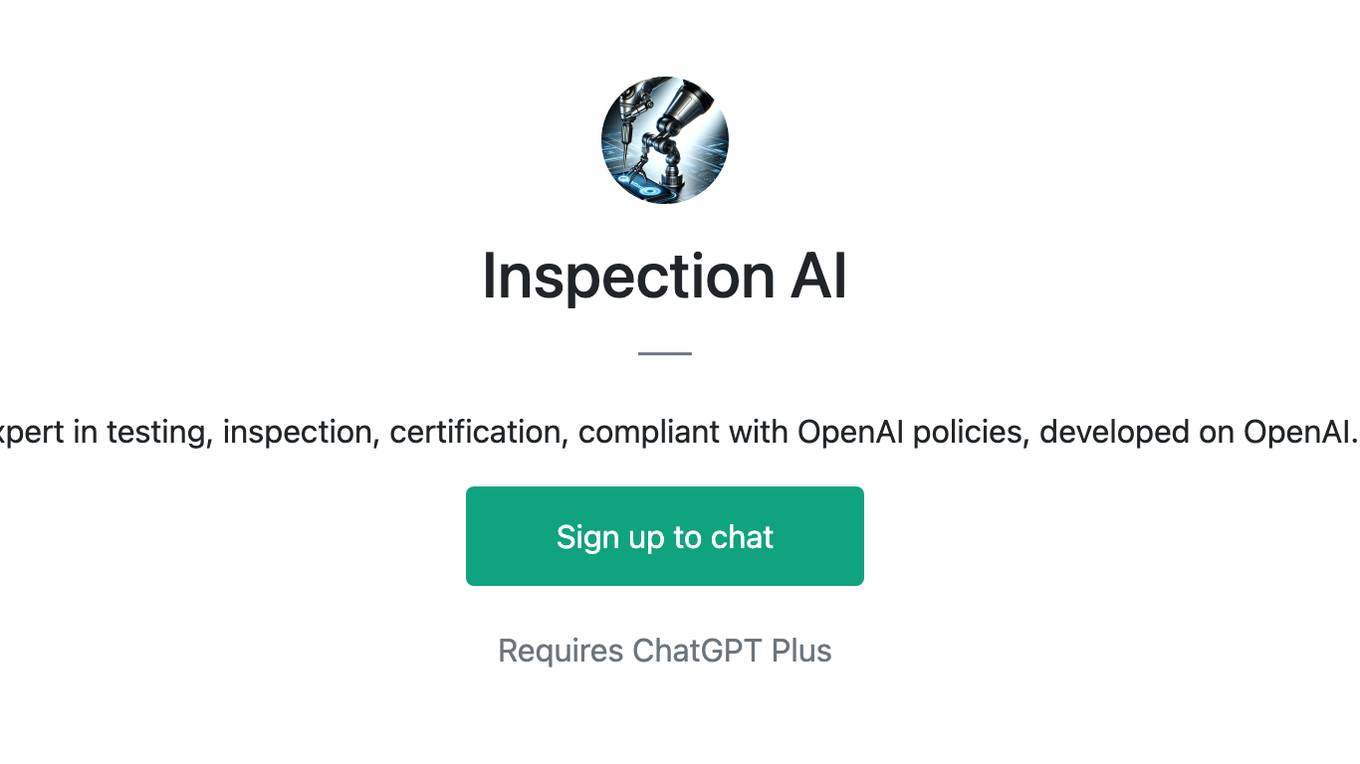
Inspection AI
Expert in testing, inspection, certification, compliant with OpenAI policies, developed on OpenAI.

PósEngenhariaDeMateriaisEMetalúrgicaBR
Especialista em Engenharia de Materiais e Metalúrgica
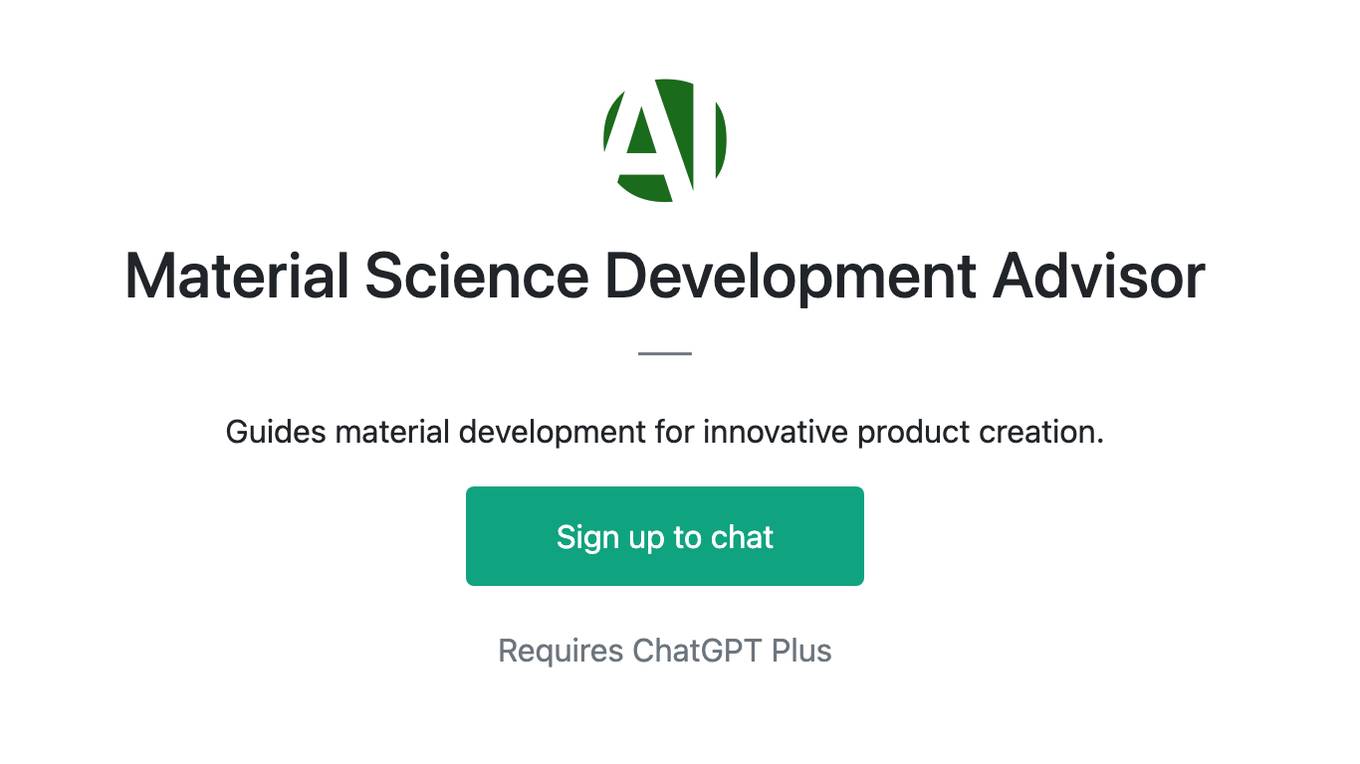
Material Science Development Advisor
Guides material development for innovative product creation.

